Sleep
How to submit an article:
- Registered users can submit any published journal article that has a unique DOI (Digital Object Identifier) name or link to Research Hub.
- For example, you can paste the full DOI link:
https://doi.org/10.1109/5.771073or just the DOI name:10.1109/5.771073into the field above and click submit. - The person who is first to submit a valid article to Research Hub will forever be credited for it, and every article submission earns you +6 Research Points.
Also known as: Sleep Quality
Related Topics
Published research studies are articles that present the findings of original research that has undergone a peer-review process and has been made publicly available in scholarly journals, books or other media.
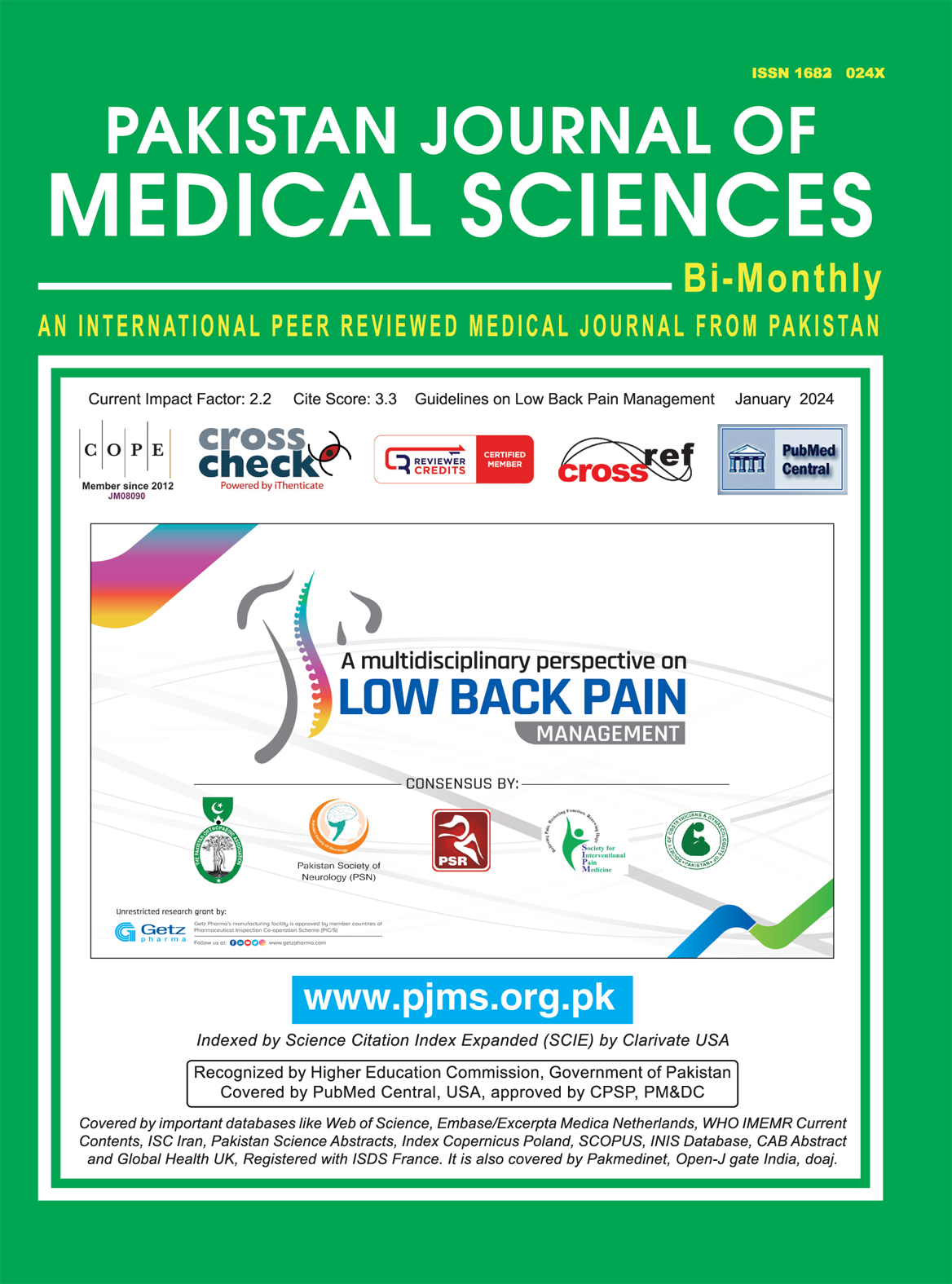
Effect of Self-developed Ye’an Analgetic Decoction/Jiawei Shaoyao Gancao Decoction Combined with Tramadol on TCM Symptom Scores and RLS Severity of patients with Restless Legs Syndrome
2024 Mar 18 Pakistan Journal of Medical Sciences Zhou B, Li W, Li Y, Sun D, Du X
The self-developed Ye’an Analgetic Decoction/Jiawei Shaoyao Gancao Decoction significantly improves clinical symptoms, reduces RLS severity, and enhances quality of life and sleep quality in RLS patients more effectively than basic treatment with tramadol alone.
Randomised Controlled Trial Clinical Study Shao Yao Gan Cao Tang Tramadol Restless Legs Syndrome
Walnut Consumption Improves Sleep Quality: A Randomized-Controlled Trial
2024 Feb 28 The 14th European Nutrition Conference FENS 2023 Izquierdo-Pulido M, Zerón-Rugerio MF, Ibarra-Picón A, Diez-Hernández M, Pérez-Cano F, Cambras T
Randomised Controlled Trial Sleep WalnutDaily consumption of walnuts improves sleep quality and reduces daytime sleepiness in healthy young adults.
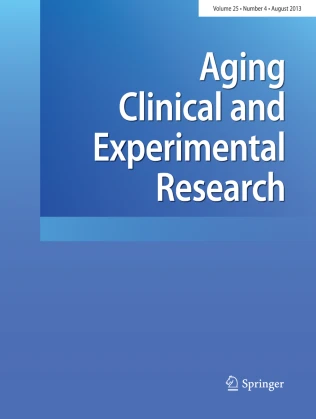
Concurrent training associated with moderate walnut consumption improved isokinetic strength, subjective sleep quality, cognitive performance and postural balance in elderly active men: a randomized controlled trial
2024 Feb 29 Aging Clinical and Experimental Research Kamoun A, Yahia A, Farjallah MA, Maaloul R, Marzougui H, Bouaziz M, et al.
Randomised Controlled Trial Postural Balance Cognitive Function Sleep WalnutWalnut consumption while doing concurrent training improves strength, sleep quality, standing support, cognitive performance and postural balance in elderly men.
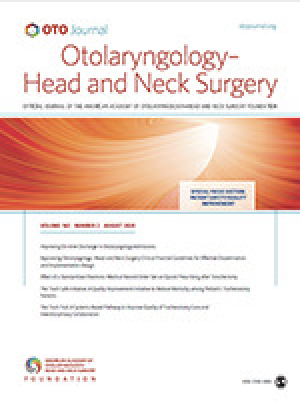
The Association of Tongue Scalloping With Obstructive Sleep Apnea and Related Sleep Pathology
2023 Dec Otolaryngology-Head and Neck Surgery Weiss TM, Atanasov S, Calhoun KH
Clinical Study Obstructive Sleep Apnoea Sleep Tongue Scalloping SnoringTongue scalloping can be a useful clinical indicator of sleep disorders, including snoring history and obstructive sleep apnea.

Combined Effects of Ziziphus jujuba, Dimocarpus longan, and Lactuca sativa on Sleep-Related Behaviors through GABAergic Signaling
2023 Dec 19 Foods Bae GY, Ko K, Yang E, Park SS, Suh HJ, Hong KB
Experimental Study Animal Study Longan GABAA blend of jujube seeds, longan fruits, and lettuce leaves significantly increases sleep time in fruit flies and mice.
Research insights are moderated by the Research Hub team and offer an at-a-glance overview of interesting research findings.

2024 Aging Clinical and Experimental Research
Walnut consumption while doing concurrent training improves strength, sleep quality, standing support, cognitive performance and postural balance in elderly men.
Randomised Controlled Trial Cognitive Function Postural Balance Walnut
Concurrent training associated with moderate walnut consumption improved isokinetic strength, subjective sleep quality, cognitive performance and postural balance in elderly active men: a randomized controlled trial
Kamoun A, Yahia A, Farjallah MA, Maaloul R, Marzougui H, Bouaziz M, et al.

2024 The 14th European Nutrition Conference FENS 2023
Daily consumption of walnuts improves sleep quality and reduces daytime sleepiness in healthy young adults.
Randomised Controlled Trial Walnut
Walnut Consumption Improves Sleep Quality: A Randomized-Controlled Trial
Izquierdo-Pulido M, Zerón-Rugerio MF, Ibarra-Picón A, Diez-Hernández M, Pérez-Cano F, Cambras T

2023 Foods
A blend of jujube seeds, longan fruits, and lettuce leaves significantly increases sleep time in fruit flies and mice.
Experimental Study GABA Longan
Combined Effects of Ziziphus jujuba, Dimocarpus longan, and Lactuca sativa on Sleep-Related Behaviors through GABAergic Signaling
Bae GY, Ko K, Yang E, Park SS, Suh HJ, Hong KB

2023 Otolaryngology-Head and Neck Surgery
Tongue scalloping can be a useful clinical indicator of sleep disorders, including snoring history and obstructive sleep apnea.
Clinical Study Obstructive Sleep Apnoea Snoring Tongue Scalloping
The Association of Tongue Scalloping With Obstructive Sleep Apnea and Related Sleep Pathology
Weiss TM, Atanasov S, Calhoun KH

2023 Nutrients
Long-term consumption of green tea can potentially lessen the risk of depression in postmenopausal women by decreasing inflammation and boosting estradiol levels.
Cohort Study Anti-Inflammatory Depression Green Tea Oestradiol Postmenopausal
Long-Term Consumption of Green Tea Can Reduce the Degree of Depression in Postmenopausal Women by Increasing Estradiol
Wan Z, Qin X, Tian Y, Ouyang F, Wang G, Wan Q
Review Articles
Review articles summarise and critically evaluate the current state of research on a specific topic or field by synthesising multiple primary research studies.
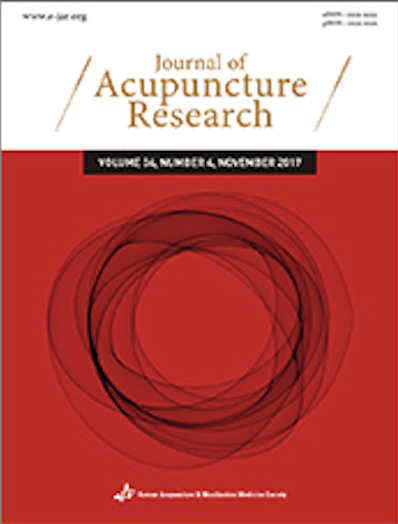
Acupuncture Treatment for Restless Legs Syndrome: A Review of Randomized Controlled Trials
2023 Nov 30 Journal of Acupuncture Research Chae GE, Kim HW, Jo HJ, Koh A, Lee YJ, Choi JE, et al.
Acupuncture demonstrates significant improvements in overall health, treatment efficacy rate, sleep quality, and quality of life indicators for patients with RLS, as evidenced by reductions in pain severity (VAS scores), RLS symptoms severity (IRLSRS scores), and absence of significant side effects. Acupuncture is suggested as an effective and safe treatment for RLS, though further large-scale RCT studies are warranted to validate these findings.
Review Article Acupuncture Restless Legs Syndrome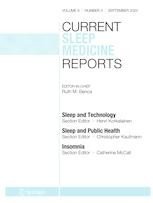
Too Sour to be True? Tart Cherries (Prunus cerasus) and Sleep: a Systematic Review and Meta-analysis
2023 Jul 11 Current Sleep Medicine Reports Stretton B, Eranki A, Kovoor J, Bacchi S, Gupta A, Maddern G, et al.
Systematic Review Meta-Analysis Cherry Sleep InsomniaThere is evidence to support significant improvements to total sleep time and sleep efficiency with the ingestion of tart cherries.
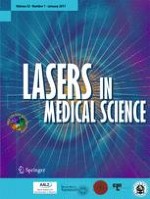
Effect of low-level laser stimulation of acupuncture points in pediatric dentistry: a systematic review
2023 Jan 24 Lasers in Medical Science Mira PCS, Vilela LD, Corona SAM, Borsatto MC
The LLLT at acupuncture points is associated with positive results on sleep bruxism, preanesthetic pain, and gag reflex in pediatric dentistry.
Systematic Review Bruxism Children's Health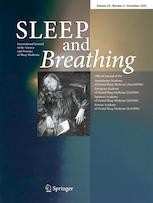
Obstructive sleep apnea hypopnea syndrome in ancient traditional Chinese medicine
2022 Oct 04 Sleep and Breathing Lv R, Zhao Y, Wang Z, Liu X, Wang Z, Li S, et al.
Systematic ReviewTraditional Chinese Medicine (TCM) practitioners attributed OSAHS to turbid phlegm and blood stasis, offering various TCM treatments for different OSAHS categories.

The potential for traditional Chinese therapy in treating sleep disorders caused by COVID-19 through the cholinergic anti-inflammatory pathway
2022 Oct 10 Frontiers in Pharmacology Xie X, Zhang N, Fu J, Wang Z, Ye Z, Liu Z
The reasons for the sleep disorders caused by the novel coronavirus and found that inflammation was the main reason leading to sleep distress in patients. And we reviewed the mechanisms of three common traditional Chinese in inhibiting inflammation through CAP and relieving the sleep or symptoms. We, therefore, propose that TCT may be a potential strategy to take for the treatment of sleep problems due to inflammation caused by COVID-19.
Review Article COVID-19Clinical Trials
Clinical trials are research studies that involve people and are conducted to evaluate the safety and efficacy of new treatments or interventions, such as drugs, medical devices, or behavioural therapies.

Effect of Self-developed Ye’an Analgetic Decoction/Jiawei Shaoyao Gancao Decoction Combined with Tramadol on TCM Symptom Scores and RLS Severity of patients with Restless Legs Syndrome
2024 Mar 18 Pakistan Journal of Medical Sciences Zhou B, Li W, Li Y, Sun D, Du X
The self-developed Ye’an Analgetic Decoction/Jiawei Shaoyao Gancao Decoction significantly improves clinical symptoms, reduces RLS severity, and enhances quality of life and sleep quality in RLS patients more effectively than basic treatment with tramadol alone.
Randomised Controlled Trial Clinical Study Shao Yao Gan Cao Tang Tramadol Restless Legs Syndrome
Walnut Consumption Improves Sleep Quality: A Randomized-Controlled Trial
2024 Feb 28 The 14th European Nutrition Conference FENS 2023 Izquierdo-Pulido M, Zerón-Rugerio MF, Ibarra-Picón A, Diez-Hernández M, Pérez-Cano F, Cambras T
Randomised Controlled Trial Sleep WalnutDaily consumption of walnuts improves sleep quality and reduces daytime sleepiness in healthy young adults.

Concurrent training associated with moderate walnut consumption improved isokinetic strength, subjective sleep quality, cognitive performance and postural balance in elderly active men: a randomized controlled trial
2024 Feb 29 Aging Clinical and Experimental Research Kamoun A, Yahia A, Farjallah MA, Maaloul R, Marzougui H, Bouaziz M, et al.
Randomised Controlled Trial Postural Balance Cognitive Function Sleep WalnutWalnut consumption while doing concurrent training improves strength, sleep quality, standing support, cognitive performance and postural balance in elderly men.
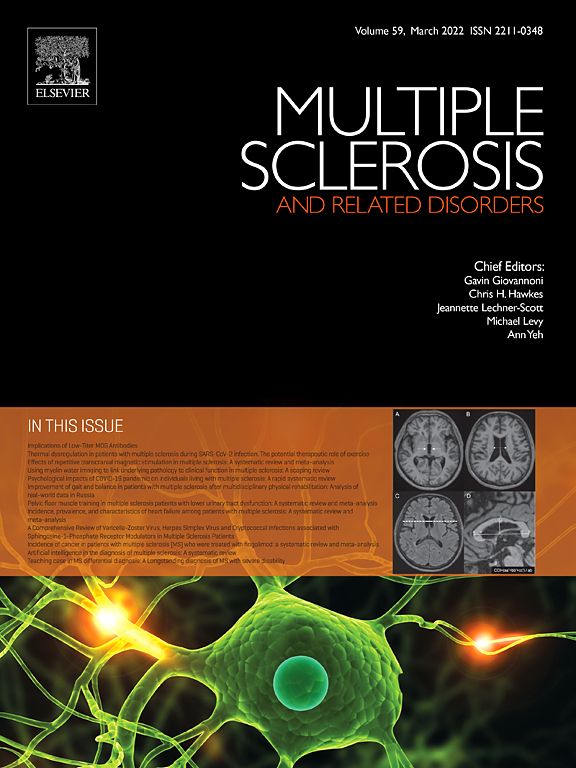
Effects of Acupuncture on Fatigue, Disability, Psychological Problems, and Sleep Quality in People with Relapsing-Remitting Multiple Sclerosis: A Randomized Controlled Trial
2023 Dec Multiple Sclerosis and Related Disorders Khodaie F, Moghadasi AN, Zhao B, Saeedi R
Twelve weeks of acupuncture treatment was effective in reducing fatigue, sleep latency, use of sleeping medication, somatization, obsessive-compulsive, depression, and paranoid disorders in people with RRMS.
Randomised Controlled Trial Multiple Sclerosis Acupuncture Sleep
Acupuncture for chemotherapy-associated insomnia in breast cancer patients: an assessor-participant blinded, randomized, sham-controlled trial
2023 Apr 26 Breast Cancer Research Zhang J, Qin Z, So TH, Chang TY, Yang S, Chen H, et al.
The active acupuncture regimen, combining needling into body acupoints and acupressure on auricular acupoints, was not superior to sham control in reducing the Insomnia Severity Index (ISI) score from baseline to 6 weeks. However, it produced short-term treatment and long-term follow-up better outcomes in improving sleep onset latency, total sleep time, sleep efficiency, anxiety, depression, and quality of life. Participants in the active acupuncture group had a higher cessation rate of sleeping medications than the sham control, indicating that acupuncture could be an effective option for managing chemotherapy-associated insomnia and serve as a tapering approach to reduce the use of sleeping medications in breast cancer patients.
Randomised Controlled Trial Breast Cancer Chemotherapy-Associated Insomnia AcupunctureStudy Protocols
Published study protocols are detailed plans that outline the objectives, methodology, statistical analyses, and organisation of a research study that have been made publicly available for others to review and use as a reference.

The effects of acupuncture on psychological symptoms in patients with insomnia: study protocol for a randomized controlled trial
2022 Feb 15 BMC Complementary Medicine and Therapies Wang L, Wang R, Yao Y, Bai X, Sheng G
The results of this study are expected to clarify the effects of acupuncture on sleep quality and psychosocial symptoms in patients with insomnia. This will contribute to the clinical practice of acupuncture in the management of insomnia.
Study Protocol Acupuncture
Efficacy and safety of electroacupuncture combined with Suanzaoren decoction for insomnia following stroke: study protocol for a randomized controlled trial
2021 Jul 24 BMC Complementary Medicine and Therapies Huang H, Yang S, Mei Z, Huang Y, Chen M, Mei Q, et al.
This study will contribute to assessing whether the combination of these two therapies is more beneficial for post-stroke insomnia than their independent use, and the results of this clinical trial will improve our understanding of the possible mechanisms underlying the effects of combination therapies.
Study Protocol Electroacupuncture Suan Zao Ren Tang Stroke Rehabilitation
Chinese Herbs Medicine Huatan Huoxue Prescription for obstructive sleep apnea hypopnea syndrome as complementary therapy
2020 Jul 24 Medicine Zhou M, Liang Q, Pei QL, Xu F, Wen H
These systematic review findings will summarize up-to-date evidence for that Huatan Huoxue Prescription (HTHXP) is more effective and safe as adjunctive treatment for patients with bronchiectasis.
Study Protocol Hua Tan Huo Xue Prescription
Effectiveness and safety of acupuncture for insomnia
2019 Nov Medicine Zhang M, Zhao J, Li X, Chen X, Xie J, Meng L, et al.
This study will provide comprehensive evidence of high quality of acupuncture treatment for insomnia from ISI, PSQI, HAMD, SAS, and adverse reactions and will provide a basis for evaluating the efficacy and safety of acupuncture in the treatment of insomnia.
Study Protocol Acupuncture Insomnia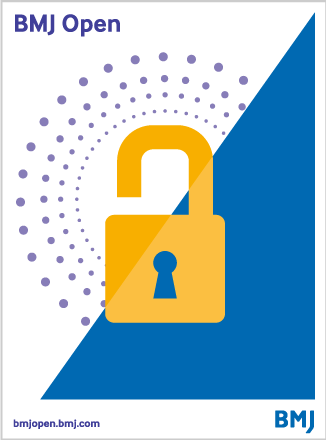
Effect of acupuncture on sleep quality and hyperarousal state in patients with primary insomnia: study protocol for a randomised controlled trial
2016 Mar BMJ Open Guo J, Huang W, Tang C, Wang GL, Zhang F, Wang L
Study Protocol AcupuncturePresentation Slides

Randomised Controlled Trial
Walnut consumption while doing concurrent training improves strength, sleep quality, standing support, cognitive performance and postural balance in elderly men.
Kamoun A, Yahia A, Farjallah MA, Maaloul R, Marzougui H, Bouaziz M, Souissi N, Elleuch MH, Hammouda O

Randomised Controlled Trial
Daily consumption of walnuts improves sleep quality and reduces daytime sleepiness in healthy young adults.
Izquierdo-Pulido M, Zerón-Rugerio MF, Ibarra-Picón A, Diez-Hernández M, Pérez-Cano F, Cambras T

Experimental Study
A blend of jujube seeds, longan fruits, and lettuce leaves significantly increases sleep time in fruit flies and mice.
Bae GY, Ko K, Yang E, Park SS, Suh HJ, Hong KB

Clinical Study
Tongue scalloping can be a useful clinical indicator of sleep disorders, including snoring history and obstructive sleep apnea.
Weiss TM, Atanasov S, Calhoun KH

Cohort Study
Long-term consumption of green tea can potentially lessen the risk of depression in postmenopausal women by decreasing inflammation and boosting estradiol levels.
Wan Z, Qin X, Tian Y, Ouyang F, Wang G, Wan Q

Experimental Study
The fermented jujube seeds extract significantly enhances sleep by binding to the GABA receptors, thus offers a promising natural alternative for sleep disorders treatment.
Bae GY, Ahn Y, Hong KB, Jung EJ, Suh HJ, Jo K

Systematic Review
There is evidence to support significant improvements to total sleep time and sleep efficiency with the ingestion of tart cherries.
Stretton B, Eranki A, Kovoor J, Bacchi S, Gupta A, Maddern G, Boyd M

Clinical Study
Consuming two medium-sized green kiwifruits an hour before bed can improve sleep quality and recovery stress balance among elite athletes.
Doherty R, Madigan S, Nevill A, Warrington G, Ellis JG

Randomised Controlled Trial
Consumption of fresh or dried kiwifruit in the evening improves aspects of sleep quality and mood, potentially mediated through changes in serotonin metabolism.
Kanon AP, Giezenaar C, Roy NC, McNabb WC, Henare SJ
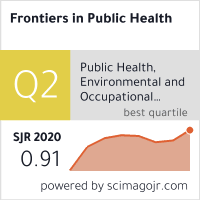
Randomised Controlled Trial
Acupuncture can improve both perimenopausal depression and insomnia with short-medium term effects while being a safe treatment.
Zhao FY, Zheng Z, Fu QQ, Conduit R, Xu H, Wang HR, Huang YL, Jiang T, Zhang WJ, Kennedy GA
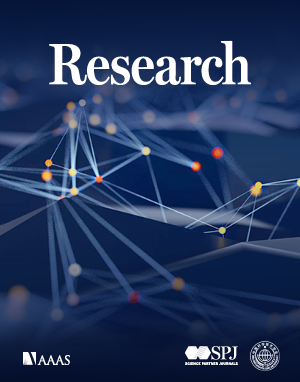
Experimental Study
A novel compound in walnuts, defined as 3-hydroxy-4-iminobutyric acid, can enhance sleep duration by disturbing motor activity and adjusting certain neurotransmitters in the brain of mice.
Ji J, Ye Y, Sheng L, Sun J, Hong Q, Liu C, Ding J, Geng S, Xu D, Zhang Y, Sun X

Experimental Study
The ethanol extract from green kiwifruit peel enhances sleep duration and onset, proving to be a potential natural aid for treating sleep disorders.
Kim D, Yoon M, Kim S, Um MY, Cho S

Meta-Analysis
Acupuncture using Lingguibafa acupoint selection shows notable improvements in various sleep parameters for individuals suffering from insomnia.
Ji H, Zhang K, Lu Y, Kong X, Ma X

Systematic Review
Traditional Chinese Medicine (TCM) practitioners attributed OSAHS to turbid phlegm and blood stasis, offering various TCM treatments for different OSAHS categories.
Lv R, Zhao Y, Wang Z, Liu X, Wang Z, Li S, Yu Q, Yue H, Yin Q
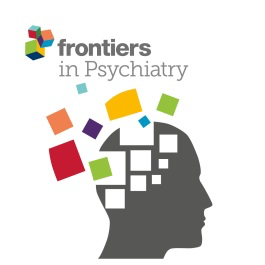
Systematic Review
Taijiquan significantly improves sleep quality in individuals suffering from insomnia, suggesting that Taijiquan offers a safe and effective intervention for addressing sleep-related issues.
Han D, Cheng J, Qu J, Wen X, Liu X, Chen Y, Wen Y, Liu Z, Liu H, Huang Y

Systematic Review
Chinese herbal medicine (CHM) improved AD symptoms but had no significant impact on patients' quality of life or IgE levels suggesting CHM's potential as an AD treatment with further research.
Cai X, Sun X, Liu L, Zhou Y, Hong S, Wang J, Chen J, Zhang M, Wang C, Lin N, Li S, Xu R, Li X

Systematic Review
The traditional Chinese medicine phlegm-resolving method combined with either CPAP or health guidance improves obstructive sleep apnea symptoms more effectively than the applied methods alone.
Zhou S, Xu H, Liu J, Fan X

Randomised Controlled Trial
Parent-administered pediatric tuina is effective at reducing core symptoms of ADHD in preschool children and improves child appetite and sleep quality.
Chen SC, Yu J, Wang HS, Wang DD, Sun Y, Cheng HL, Suen LKP, Yeung WF
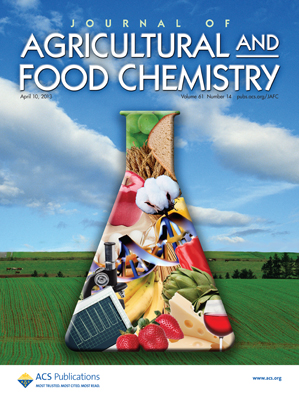
Review Article
Jujube nutrients may offer potential therapeutic benefits including antioxidant, antibacterial, anti-inflammatory functions, and improving sleep quality and learning.
Hua Y, Xu X, Guo S, Xie H, Yan H, Ma X, Niu Y, Duan JA
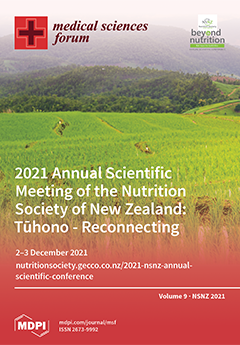
Randomised Controlled Trial
Consuming New Zealand green kiwifruit improves sleep quality, mood, and increases the concentration of serotonin metabolites.
Kanon AP, Giezenaar C, Roy NC, McNabb WC, Henare SJ

Systematic Review
Acupuncture can be a safe and effective alternative therapy to conventional drugs for improving sleep quality and relieving symptoms in patients with active depression.
Zhao FY, Kennedy GA, Spencer SJ, Conduit R, Zhang WJ, Fu QQ, Zheng Z
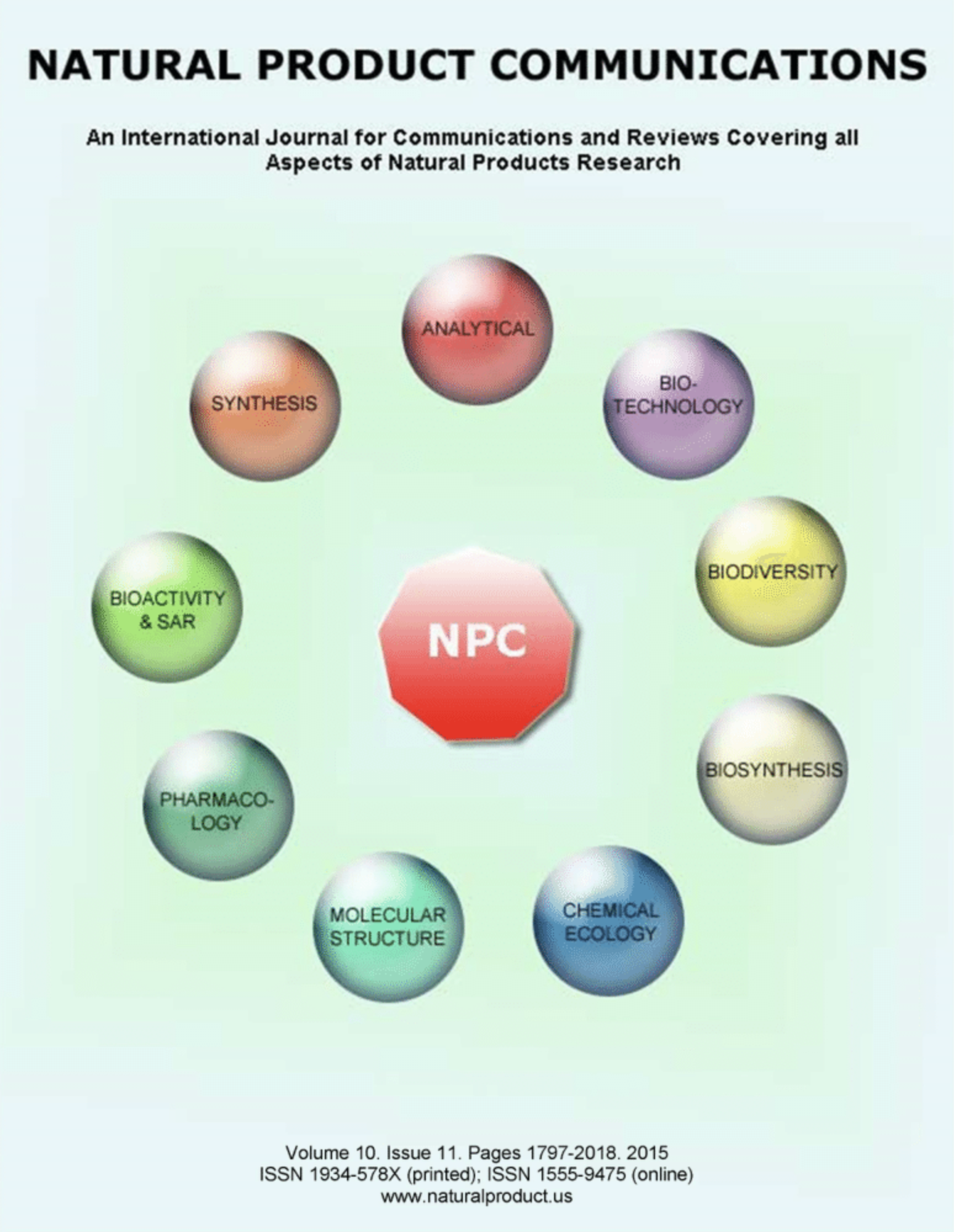
Randomised Controlled Trial
Walnut oligopeptide improves cognitive performance and sleep quality among teenagers and elderly people.
Yeh AL, Chao CL, Huang WF, Lin HC, Wang CJ
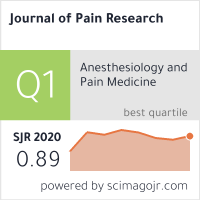
Systematic Review
Acupuncture is more effective than control treatment in alleviating pain and improving well-being in both the short- and long-term in patients with fibromyalgia.
Zheng C, Zhou T

Systematic Review
High prevalence of insomnia, anxiety, and depression among perimenopausal women, emphasizing the importance of exploring acupuncture as a potential green therapy for effectively addressing these interconnected issues.
Ping Y, Liang C, Fan X, Zhang L, Ying D, Wang Z

Experimental Study
The Licorice and Jujube formula is seen as commonly used and potentially effective for treating menopausal symptoms as per classical Chinese medicine.
Coyle ME, Liu J, Yang H, Wang K, Zhang AL, Guo X, Lu C, Xue CC
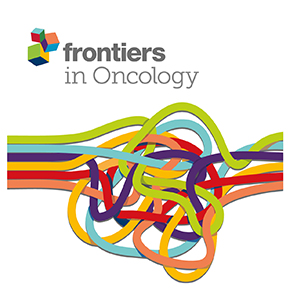
Systematic Review
Current evidence suggests that acupuncture might improve breast cancer treatment-related symptoms measured with patient-reported outcomes including quality of life, pain, fatigue, hot flashes, sleep disturbance and anxiety.
Zhang Y, Sun Y, Li D, Liu X, Fang C, Yang C, Luo T, Lu H, Li H, Zhang H, Liang Q, Wu J, Huang L, Xu R, Ren L, Chen Q

Randomised Controlled Trial
Lavandula angustifolia essential oil inhalation seemed to enhance overall sleep patterns, quality, and efficiency in postmenopausal women with insomnia.
dos Reis Lucena L, dos Santos-Junior JG, Tufik S, Hachul H

Systematic Review
Acupuncture improves perimenopausal sleep quality and symptoms, potentially a safe alternative or adjunct to hypnotic drugs, requiring further research validation.
Zhao, F.-Y., Fu, Q.-Q., Kennedy, G. A., Conduit, R., Wu, W.-Z., Zhang, W.-J., & Zheng, Z.
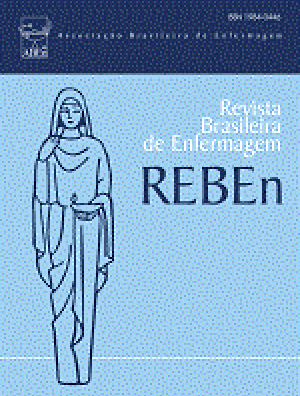
Systematic Review
Acupuncture has a positive effect in improving quality of life, fatigue and sleep in patients with chronic kidney disease.
Melo GAA, Aguiar LL, Silva RA, Pereira FGF, Silva FLBD, Caetano JÁ.
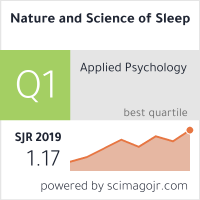
Randomised Controlled Trial
Ten sessions of electroacupuncture can improve the sleep quality of patients with insomnia without serious adverse effects.
Lee B, Kim BK, Kim HJ, Jung IC, Kim AR, Park HJ, Kwon OJ, Lee JH, Kim JH.
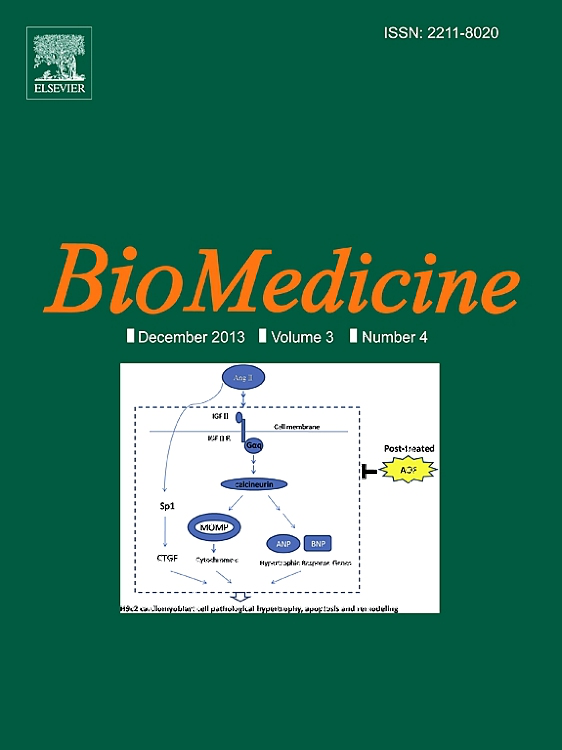
Randomised Controlled Trial
Consumption of jujube seed had a positive impact on improving the sleep quality of postmenopausal women and could be recommended as a useful herbal medication.
Mahmoudi R, Ansari S, Haghighizadeh MH, Maram NS, Montazeri S.
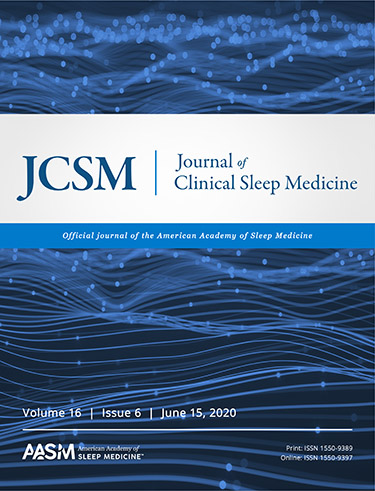
Randomised Controlled Trial
The use of standardized saffron extract appears to show significant improvement in sleep quality in healthy adults with self-reported sleep issues.
Lopresti AL, Smith SJ, Metse AP, Drummond PD

Randomised Controlled Trial
Acupuncture was shown to significantly improve the sleep quality in pregnant women, possibly through increasing melatonin secretion.
Foroughinia S, Hessami K, Asadi N, Foroughinia L, Hadianfard M, Hajihosseini A, Pirasteh N, Vossoughi M, Vafaei H, Faraji A, Kasraeian M, Doroudchi M, Rafiee Monjezi M, Roozmeh S, Bazrafshan K.
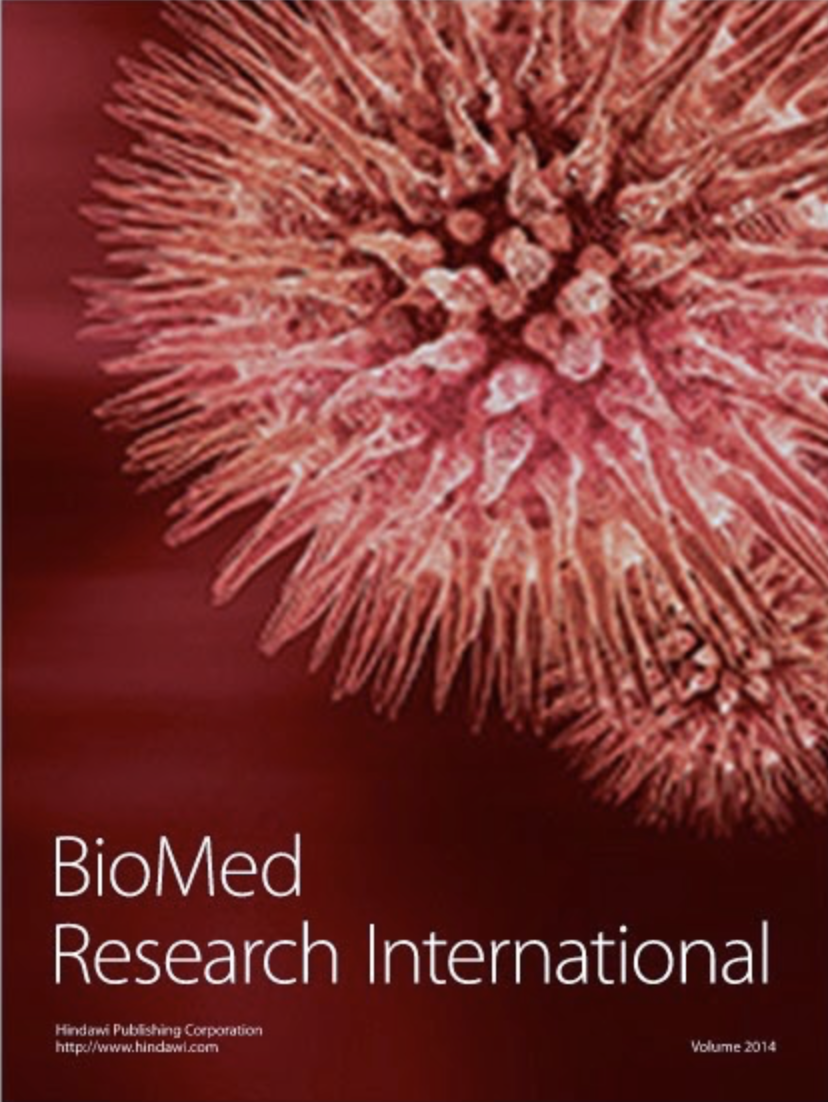
Systematic Review
Acupuncture may be an effective and safe treatment in obstructive sleep apnea patients.
Liaoyao Wang, Jia Xu, Yijun Zhan, Jian Pei
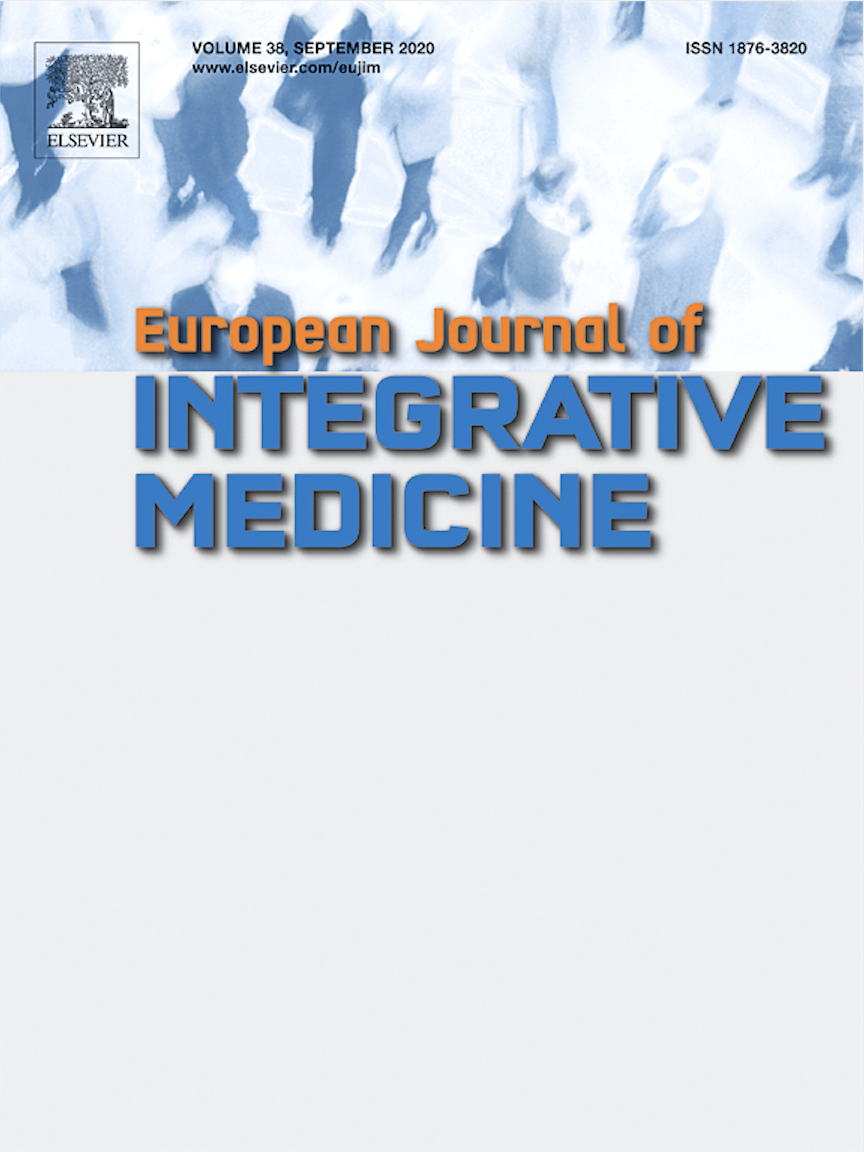
Randomised Controlled Trial
Intranasal application of essential oils such as lavender and fennel (Pinetonina™) significantly lowers cortisol levels and improves sleep quality.
Polonini H, Mesquita D, Lanine J, Dijkers E, Gkinis S, Raposo NRB, Brandão MAF, Ferreira AO

Randomised Controlled Trial
Group acupuncture was noninferior to individual acupuncture for treating cancer pain and was superior in many health outcomes. Group acupuncture is more cost-effective for alleviating cancer pain and should be considered for implementation trials.
Erica Nicole Reed, Jessa Landmann, Devesh Oberoi, Katherine-Ann L. Piedalue, Peter Faris, Linda E. Carlson
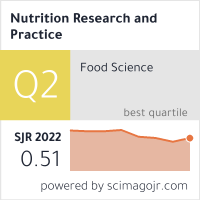
Randomised Controlled Trial
Sleep quality in adults with disturbed sleep improved significantly after an 8-week course of naturally-derived sleep-inducing juice made from lettuce, orange, pineapple and cherry.
Kim C, Kim M, Kim M, Jung H
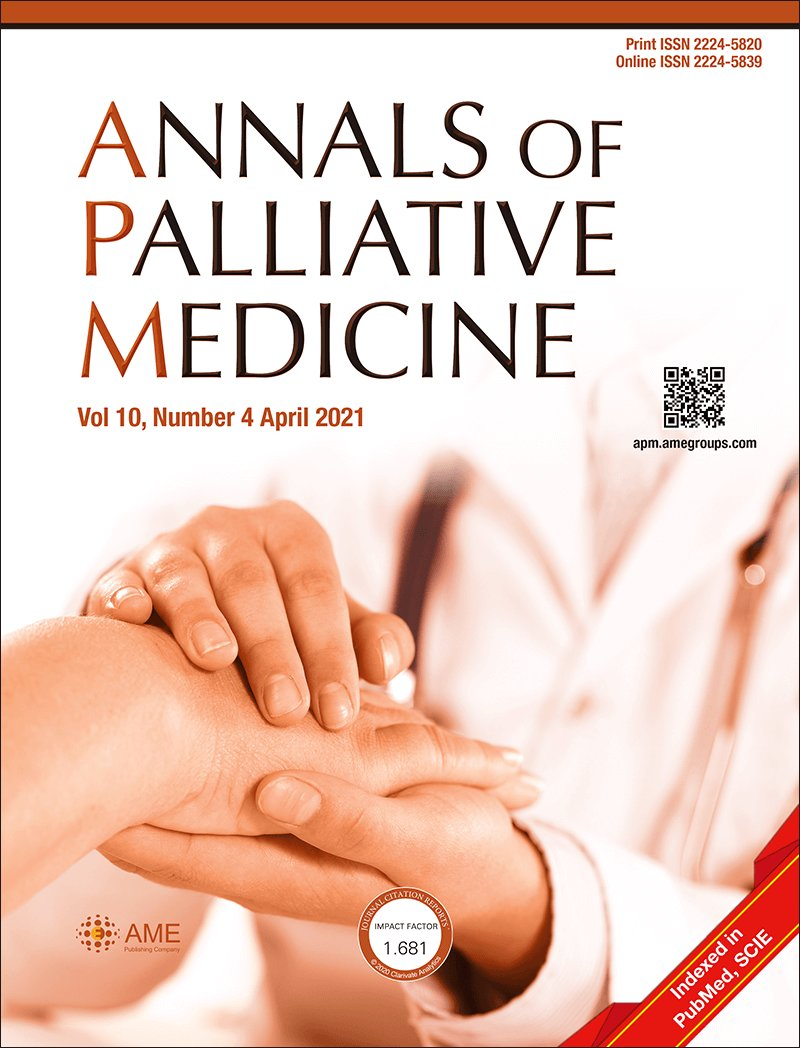
Systematic Review
Acupuncture treatment of insomnia is efficacious, not because of its placebo effect.
Liu C, Xi H, Wu W, Wang X, Qin S, Zhao Y, Zheng S, Wan Q, Xu L.
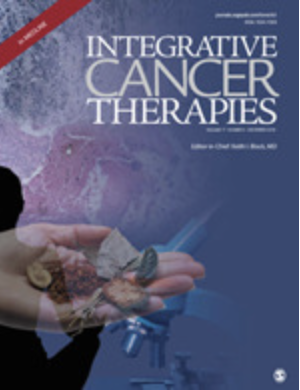
Clinical Study
Tian Wang Bu Xin Dan can potentially alleviate symptoms of cancer-related insomnia similarly to cognitive-behavioral therapy.
Moon SY, Jerng UM, Kwon OJ, Jung SY, Lee JY, Yoon SW, Shin WC, Byun JI, Lee JH
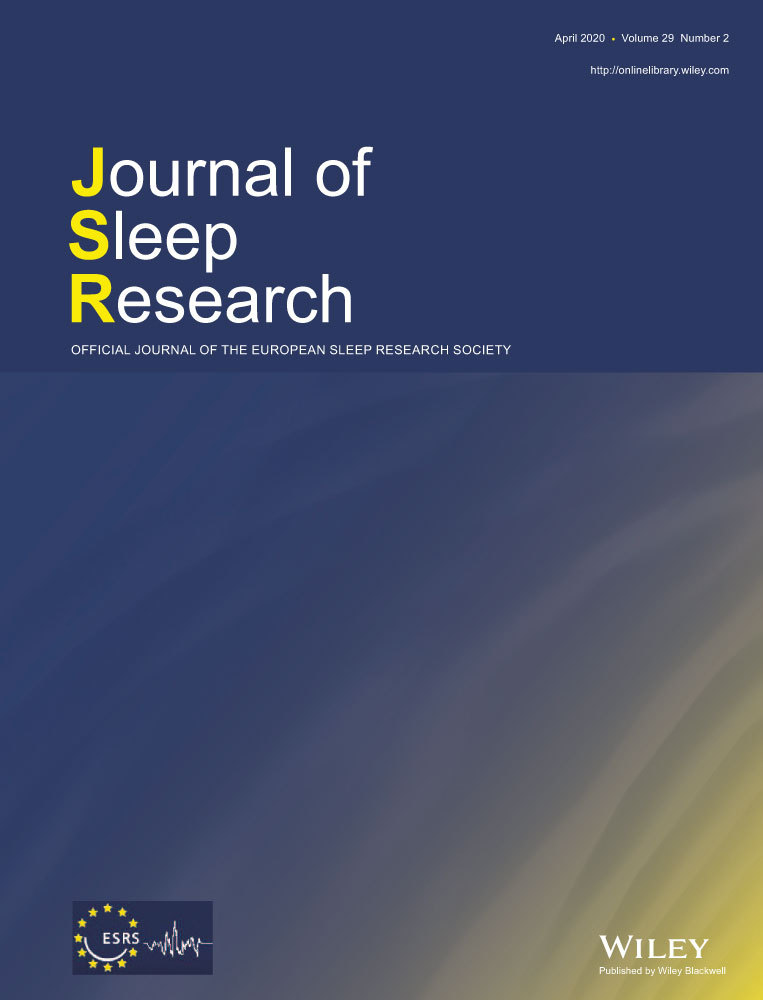
Randomised Controlled Trial
Acupuncture therapy does not impact the severity of Obstructive Sleep Apnea, blood pressure, or quality of life in hypertensive patients.
Silva MVFP, Lustosa TC, Arai VJ, Couto Patriota TLG, Lira MPF, Lins‐Filho OL, Chalegre ST, B.B.A.S. K, Secundo IV, Pedrosa RP
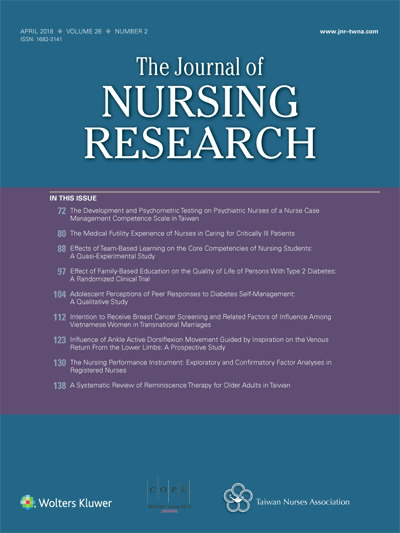
Systematic Review
Aromatherapy enhances physio-psychological well-being in postpartum women.
TSAI SS, WANG HH, CHOU FH
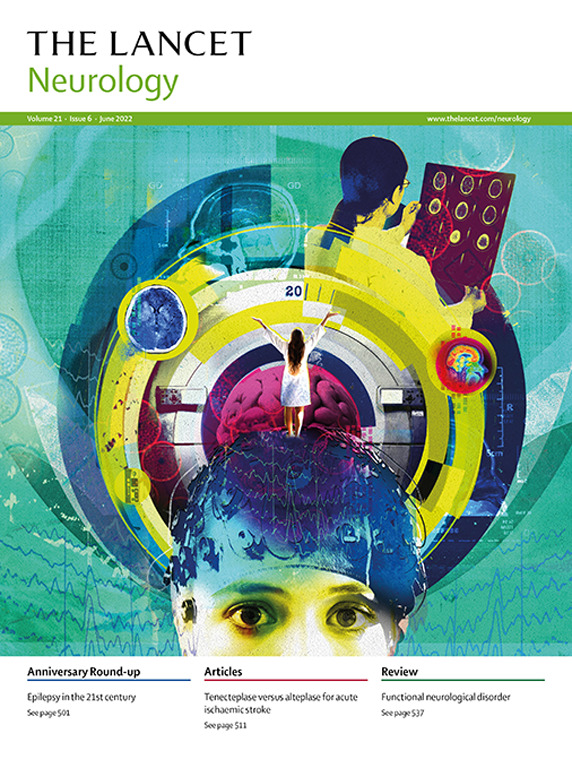
Review Article
Traditional Chinese Medicine provides a valuable, holistic approach to Parkinson's disease prevention and treatment, offering another angle besides Western medicinal practices.
SongLi, WeidongLe

Meta-Analysis
Chamomile has demonstrative positive effects on generalized anxiety disorders and sleep quality, but exhibits minimal impact on state anxiety and insomnia.
Hieu TH, Dibas M, Surya Dila KA, Sherif NA, Hashmi MU, Mahmoud M, Trang NTT, Abdullah L, Nghia TLB, Y MN, Hirayama K, Huy NT
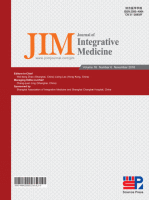
Systematic Review
Findings indicated reductions in patient symptoms and improvements in biomarkers where acupuncture was used alone or in combination therapy against thyroid-relevant illnesses.
Cheng FK
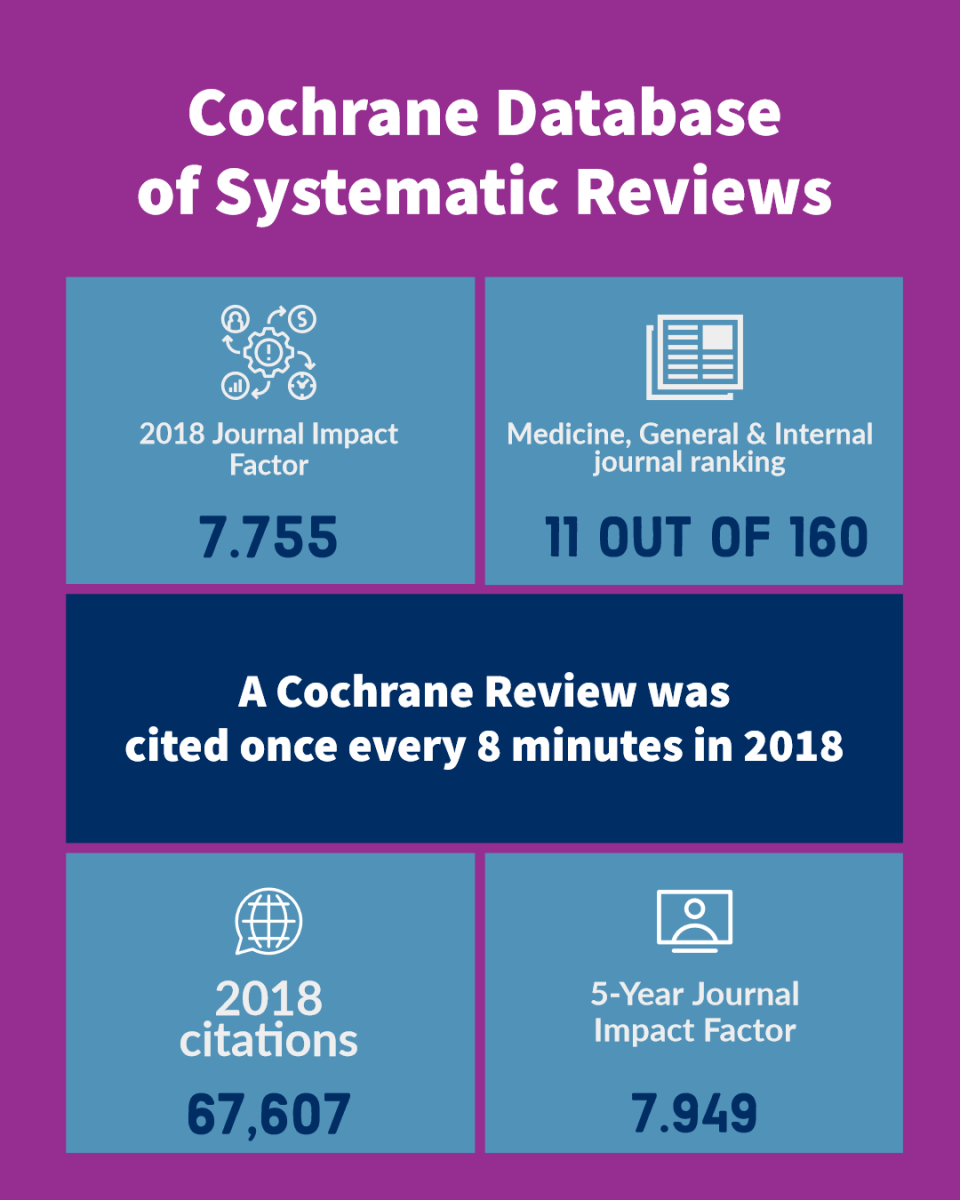
Review Article
Moderate‐certainty evidence showed that honey probably reduces cough duration to a greater extent than salbutamol or placebo. Honey group participants were first to get total relief of cough compared to salbutamol or placebo.
Oduwole O, Udoh EE, Oyo-Ita A, Meremikwu MM

Randomised Controlled Trial
Acupuncture may improve symptoms in patients with mild-to-moderate atopic dermatitis.
Smith CA, Armour M, Lee MS, Wang LQ, Hay PJ
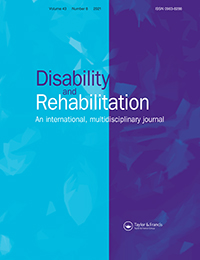
Systematic Review
Standard acupuncture was significantly more effective for restless legs syndrome severity than control conditions.
Harrison EG, Keating JL, Morgan PE.
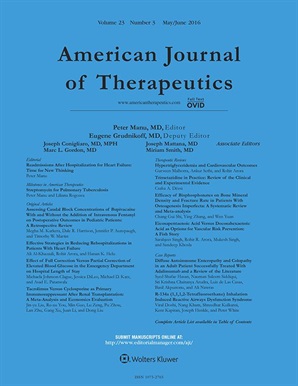
Randomised Controlled Trial
Cherry juice increases sleep time and efficiency in older adults with insomnia, potentially due to its inhibition of a process that degrades tryptophan and stimulates inflammation.
Losso JN, Finley JW, Karki N, Liu AG, Prudente A, Tipton R, Yu Y, Greenway FL
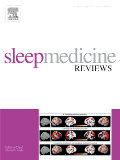
Systematic Review
The results showed that even fragile populations such as the elderly and dialysis patients can benefit from acupressure to improve sleep quality.
Alexander Waits, You-Ren Tang, Hao-Min Cheng, Chen-Jei Tai, Li-Yin Chien

Randomised Controlled Trial
Chamomile extract significantly improved sleep quality among the elderly, suggesting its potential as a safe sleep-promotion tool for this population.
Adib-Hajbaghery M, Mousavi SN
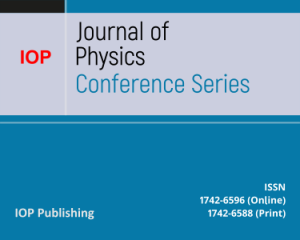
Randomised Controlled Trial
Acupuncture treatment effectively improved the quality of sleep and the quality of life for chronic hemodialysis patients.
J A Widjaja, C Simadibrata, A Srilestari, M B H Marbun

Systematic Review
The severity of primary restless legs syndrome symptoms can be significantly ameliorated by acupuncture.
Xu XM, Liu Y, Jia SY, Dong MX, Cao D, Wei YD.
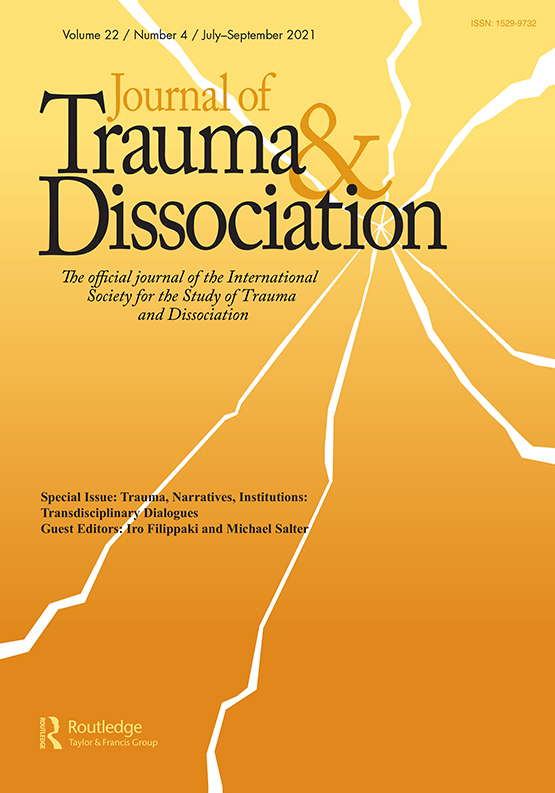
Systematic Review
There are potential clinical benefits of acupuncture on PTSD symptoms and functional status immediately post-intervention, as well as PTSD and depressive symptoms in the months following completion of acupuncture treatment.
Grant S, Colaiaco B, Motala A, Shanman R, Sorbero M, Hempel S

Randomised Controlled Trial
Kiwifruit consumption before bedtime significantly improves sleep quality and daytime function in individuals with chronic insomnia in comparison to pear consumption.
Nødtvedt O, Hansen AL, Bjorvatn B, Pallesen S

Systematic Review
Acupuncture may have beneficial effects on improving dependency, global neurological deficiency, and some specific neurological impairments for people with stroke in the convalescent stage, with no obvious serious adverse events.
Yang A, Wu HM, Tang JL, Xu L, Yang M, Liu GJ.

Systematic Review
Our results suggest that acupuncture could be effective for treating insomnia after stroke.
Lee SH, Lim SM

Systematic Review
Acupuncture compared to sham/placebo and pharmacotherapy showed statistically significant results for insomnia.
Shergis JL, Ni X, Jackson ML, Zhang AL, Guo X, Li Y, Lu C, Xue CC

Systematic Review
Both manual acupuncture and electroacupuncture were effective in improving the apnea/hypopnea index and mean SaO2 in the treatment of obstructive sleep apnea.
Zheng-tao Lv, Wen-xiu Jiang, Jun-ming Huang, Jin-ming Zhang, An-min Chen
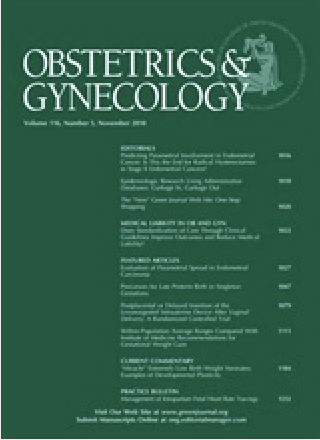
Systematic Review
Acupuncture is associated with a significant reduction in sleep disturbances in women experiencing menopause-related sleep disturbances.
Chiu, Hsiao-Yean RN, PhD; Hsieh, Yu-Jung RN, MSN; Tsai, Pei-Shan RN

Systematic Review
Acupuncture is associated with a significant reduction in sleep disturbances in women experiencing menopause-related sleep disturbances.
Chiu HY, Hsieh YJ, Tsai PS.
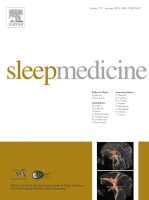
Systematic Review
Chinese herbal medicine was superior to placebo and benzodiazepine drugs and was superior to benzodiazepines and psychotherapy alone as an adjunct therapy in terms of subjective sleep quality and quantity and safety.
Xiaojia Ni, Johannah Linda Shergis, Xinfeng Guo, Anthony Lin Zhang, Yan Li, Chuanjian Lu, Charlie Changli Xue
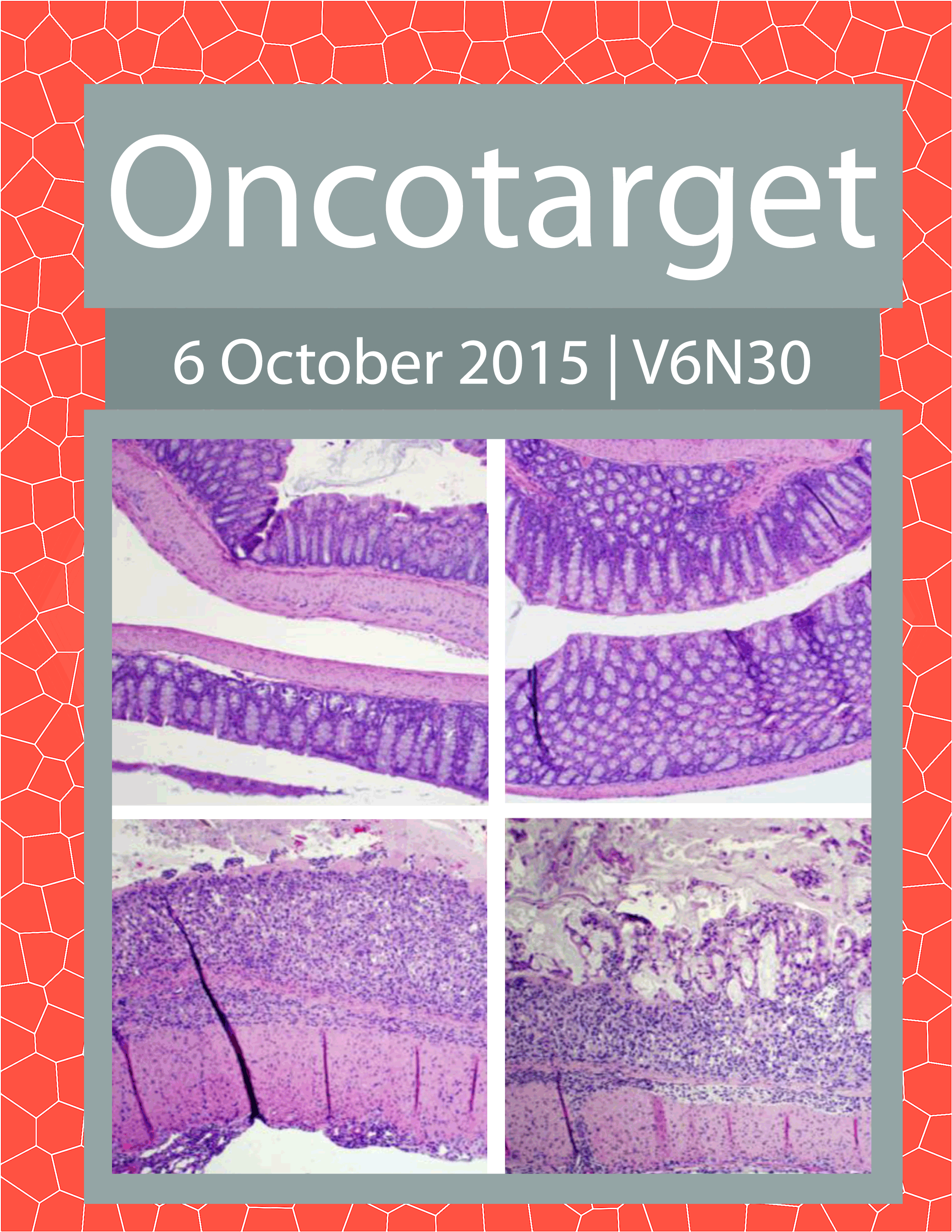
Systematic Review
Traditional Chinese medicine psycho-behavioral interventions represent beneficial adjunctive therapies for cancer patients.
Tao W, Luo X, Cui B, Liang D, Wang C, Duan Y, Li X, Zhou S, Zhao M, Li Y, He Y, Wang S, Kelley KW, Jiang P, Liu Q.
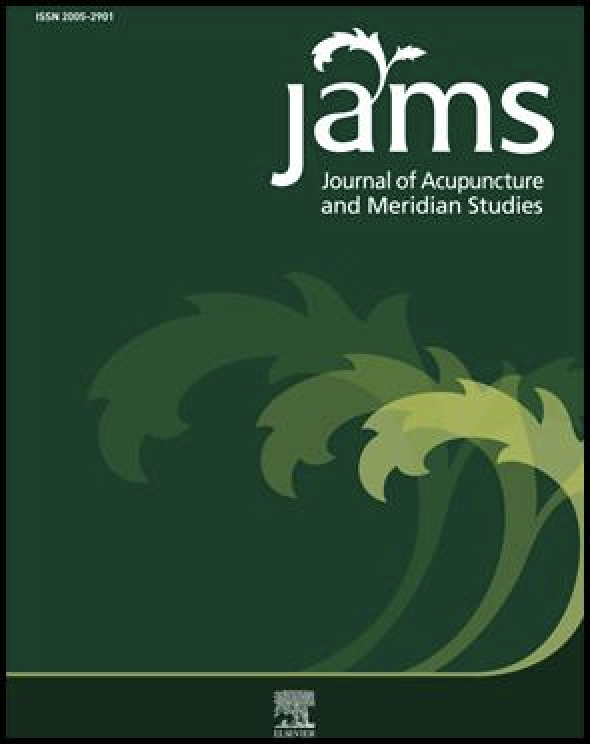
Randomised Controlled Trial
Short-term acupuncture treatment is more effective than ibuprofen for mild to moderate carpal tunnel syndrome.
Hadianfard M, Bazrafshan E, Momeninejad H, Jahani N.

Systematic Review
Acupuncture can be safely applied as an alternative, adjuvant treatment in clinical practice to treat sleep disorders in postmenopausal women.
Bezerra AG, Pires GN, Andersen ML, Tufik S, Hachul H.
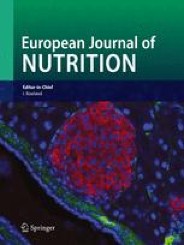
Randomised Controlled Trial
Consumption of tart cherry juice can increase exogenous melatonin that is beneficial in improving sleep duration and quality and might be of benefit in managing disturbed sleep.
Howatson G, Bell PG, Tallent J, Middleton B, McHugh MP, Ellis J

Clinical Study
Chinese acupuncture is safe and can be efficient in alleviating pain in patients suffering from temporomandibular disorder without clear joint pathology.
Noiman M, Garty A, Maimon Y, Miller U, Lev-Ari S.
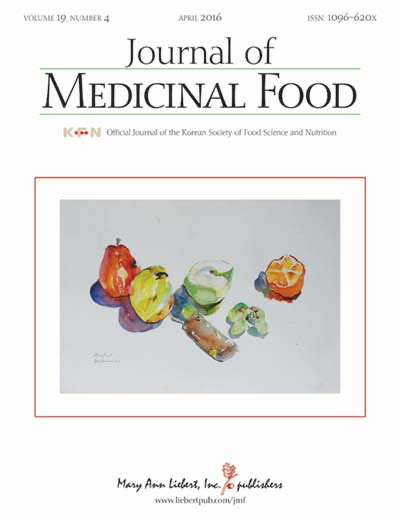
Randomised Controlled Trial
Tart cherry juice blend yielded modest improvements in sleep for older adults with insomnia, exhibiting effects similar to or better than natural products like valerian and melatonin.
Pigeon WR, Carr M, Gorman C, Perlis ML
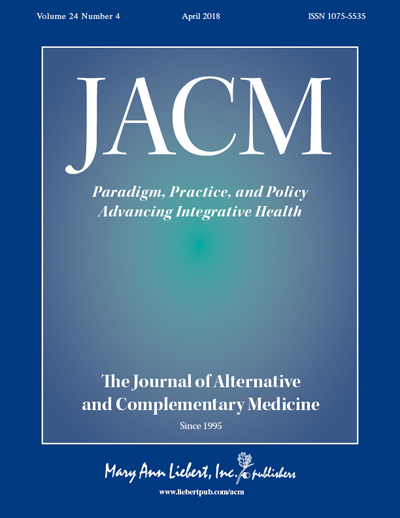
Systematic Review
Clinical studies have shown that acupuncture may have a beneficial effect on insomnia compared with Western medication.
Cao H, Pan X, Li H, Liu J.
Executive Summary
Write an executive summary in the form of a blog article on the topic of "Research into Chinese medicine treatment for Sleep" summarising the research below and using language that can be easily understood by patients and avoiding medical jargon using a professional and caring tone of voice.
Write an executive summary in the form of a blog article on the topic of "Researched Chinese medicine treatments for Sleep" summarising the research below in an objective and easy to understand way, and using language that can be easily understood by patients. Group the article into Chinese medicine treatments first, followed by nutrition and other treatments. Avoid using medical jargon and use a professional and caring tone of voice.
Write me a concise but easy to understand executive summary on the topic of "Chinese medicine treatments for Sleep" based on the following research that I will give you. Your summary should be 2 paragraphs long in Australian English spelling and include references to the studies.
A Randomised Controlled Trial published in 2024 in the journal Aging Clinical and Experimental Research found that Walnut consumption while doing concurrent training improves strength, sleep quality, standing support, cognitive performance and postural balance in elderly men. In the study, twenty healthy elderly men were grouped into two randomly controlled cohorts. There were three training sessions per week featuring a concurrent combination of strength and endurance training. One group received a diet supplemented with 15 grams per day of walnuts (CTW) over six weeks while the other didn't (CT). Their strength, sleep quality, cognitive performance and postural balance were evaluated using an isokinetic strength test, Spiegel questionnaire, Montreal cognitive assessment and balance measurements respectively, 48 hours before and after the intervention period. The results pointed that both groups experienced significant improvements in strength and sleep quality with CTW showing a greater increase in sleep quality. CTW group showed improvements in cognitive performance and postural balance while CT group did not see these benefits. Hence it's observed that combination of concurrent training and walnut consumption was found to be effective in improving strength, sleep quality, cognitive performance and postural balance in elderly men.
A Randomised Controlled Trial published in 2024 in the journal The 14th European Nutrition Conference FENS 2023 found that Daily consumption of walnuts improves sleep quality and reduces daytime sleepiness in healthy young adults. In the above-mentioned experimental trial, 80 young adults were randomly selected to either consume 40 grams of walnuts daily or abstain from eating walnuts and any other nuts for 8 weeks, followed by a two-week break. Actigraphy was used to measure sleep quality, from various dimensions such as duration, latency, awakenings, and sleep efficiency, while daytime sleepiness was measured using the Epworth Sleepiness Scale. Furthermore, the concentration of 6-sulfatoxymelatonin, a melatonin metabolite, was assessed in urine samples collected at two intervals throughout the day and night. This research observed a notable improvement in the subjects' sleep quality after an 8-week period of walnut consumption. The participants experienced shorter sleep latency, greater sleep efficiency, and reduced daytime sleepiness. Additionally, there was a heightened concentration of 6-sulfatoxymelatonin in urine samples collected between 20:00 to 23:00. These results suggest that a daily intake of 40 grams of walnuts may augment the secretion of melatonin, thereby improving sleep quality and reducing daytime sleepiness in healthy young adults.
A Experimental Study published in 2023 in the journal Foods found that A blend of jujube seeds, longan fruits, and lettuce leaves significantly increases sleep time in fruit flies and mice. In the methodology of this study, behavioral analyses using fruit flies were carried out to find the optimal combination of extracts from Ziziphus jujuba seeds, Dimocarpus longan fruits, and Lactuca sativa leaves. The experiment further tested this mixture's sleep-enhancing effects on a caffeine-induced sleepless model and via neurotransmitter receptor antagonists in fruit flies. Additionally, ICR mice were used to comprehend the potential effect of the extracts on sleep duration. Discussion of the study's outcomes has indicated that the mixed ratio – particularly 4:1:1 – of the three extracts considerably enhances total sleep time both in the fruit flies and the mice. Moreover, the experiment spotted alternations in gene expression related to GABA receptors, pointing to a probable mechanism underlying the promoted sleep effects.
A Clinical Study published in 2023 in the journal Otolaryngology-Head and Neck Surgery found that Tongue scalloping can be a useful clinical indicator of sleep disorders, including snoring history and obstructive sleep apnea. In the study, sixty-one patients from an otolaryngology clinic were evaluated with historical and physical examinations for tongue scalloping, snoring, and other symptoms linked to sleep-disordered breathing and obstructive sleep apnea. The evaluation of tongue scalloping was graded on a scale from 0 to 3. Additionally, twenty-five patients underwent overnight polysomnography to definitively diagnose sleep pathology. In the discussions of results, it was found that 44% of patients displayed some degree of tongue scalloping, and this symptom was primarily found in males. Among patients diagnosed with obstructive sleep apnea or having a snoring history, the presence of any tongue scalloping was detected. It also showed a positive correlation with increasing Mallampati and modified Mallampati airway classifications. Besides, the presence of tongue scalloping was indicative of abnormal sleep efficiency, increased apnea-hypopnea index, and nocturnal desaturation greater than 4% below the normal baseline, suggesting it could serve as a predictor of sleep pathology.
A Cohort Study published in 2023 in the journal Nutrients found that Long-term consumption of green tea can potentially lessen the risk of depression in postmenopausal women by decreasing inflammation and boosting estradiol levels. In the study, researchers performed an analysis on a tea-producing village, incorporating 386 postmenopausal women in the investigation, who participated either as green tea consumers or non-drinkers (control group). The level of estradiol, inflammation markers, sleep quality, and depression symptoms were measured to uncover any correlations. The results reflected significant disparities between the tea-drinking and control groups in terms of depression and insomnia levels, BMI, inflammation levels, and estradiol quantities. By appraising these outcomes, it was found that green tea intake could quell the likelihood of depression via its impact on sleep, inflammation, and estradiol levels. The risk of depression was consequently seen as reduced among postmenopausal women engaging in regular consumption of green tea.
A Experimental Study published in 2023 in the journal Foods found that The fermented jujube seeds extract significantly enhances sleep by binding to the GABA receptors, thus offers a promising natural alternative for sleep disorders treatment. Methodology: An aqueous extract of jujube seeds (ZW) was fermented, following a starch-removing enzymatic degradation process, to increase its γ-aminobutyric acid (GABA) content, resulting in a fermented product (ZW-FM). The sleep-promoting effect of ZW-FM was evaluated using rodent models; specifically, sleep tests were performed on ICR mice with pentobarbital-induced sleep, while the electroencephalography analysis was undertaken in Sprague Dawley rats. Awakening relief effects of ZW-FM were assessed using a caffeine-induced insomnia model. To understand the mechanism, GABA receptor type A (GABA) antagonists were used. Results: The groups given ZW-FM treatment displayed a longer sleep duration, particularly increased δ-wave time during non-rapid eye movement sleep, and reduced sleep latency. Particularly, the model treated with ZW-FM showed an increase in non-rapid-eye-movement sleep and a reduction in the REM sleep duration, brought about by caffeine treatment. The enhanced sleep induction caused by ZW-FM was hindered by GABA receptor antagonists, thereby validating the involvement of a GABAergic mechanism in promoting sleep.
A Systematic Review published in 2023 in the journal Current Sleep Medicine Reports found that There is evidence to support significant improvements to total sleep time and sleep efficiency with the ingestion of tart cherries. We identified a total of 277 unique records, from which 8 studies of low-moderate methodological quality were included in the systematic review. Meta-analysis of subjectively recalled sleep efficiency (SE) and total sleep time (TST) were not significant. Objective SE, however, was significantly higher in the cherry cohort when compared to placebo with an effect size of 0.63 (95% CI 0.29–0.97, P < 0.01). There was low associated heterogeneity (I2 = 0%). Objective TST was significantly higher in the cherry cohorts, with a pooled effect size of 1.21 (95% CI 0.83–1.58, P < 0.01). There was high associated heterogeneity (I2 = 81.5%).
A Clinical Study published in 2023 in the journal Nutrients found that Consuming two medium-sized green kiwifruits an hour before bed can improve sleep quality and recovery stress balance among elite athletes. The study began with an initial assessment, after which all participants were instructed to consume two medium-sized green kiwifruits an hour before bedtime over a 4-week span. Data was collected through baseline and post-intervention questionnaires, as well as daily sleep diary entries throughout the study duration. There was a notable positive effect of kiwifruit consumption on essential aspects of sleep and recovery in professional athletes. After the intervention period, improvements were observed in sleep quality and recovery stress balances. Additionally, there was an increase in total sleep time, sleep efficiency, and a decrease in the number of times participants woke after falling asleep. The study concludes that kiwifruits positively influence sleep and recovery in high-performing athletes.
A Randomised Controlled Trial published in 2023 in the journal Frontiers in Nutrition found that Consumption of fresh or dried kiwifruit in the evening improves aspects of sleep quality and mood, potentially mediated through changes in serotonin metabolism. A randomized, single-blind crossover study involving 24 men with varying sleep quality levels was conducted. Participants were provided with one of three treatments during their standard evening meal at home: the flesh of two fresh green kiwifruits, dried green kiwifruit powder (with skin and equivalent to the dry matter of two fresh kiwifruits) mixed with water, or a water control. Various factors were evaluated including subjective and objective sleep quality, mood, and urine concentration of several compounds including the serotonin metabolite 5-HIAA, vitamin C, and B-vitamins. Findings indicated that regardless of sleep quality group, dried kiwifruit consumption was associated with an improvement in morning sleepiness, alertness upon waking, and vigor as compared to the control. Both fresh and dried kiwifruit treatments suggested an improvement in self-esteem and overall mood disturbance. Increase in the urinary concentration of serotonin metabolite was observed with both kiwifruit treatments. Amongst poor sleepers, ease of awakening was notably improved after the intake of dried kiwifruit and showed signs of improvement with fresh kiwifruit. For good sleepers, there seemed to be an improvement in getting to sleep with fresh kiwifruit. Poor sleepers were found to have lower quantities of certain B-vitamins compared to good sleepers. Thus, both dried and fresh kiwifruit consumption with a standard evening meal showed a positive impact on sleep quality and mood.
A Randomised Controlled Trial published in 2023 in the journal Frontiers in Public Health found that Acupuncture can improve both perimenopausal depression and insomnia with short-medium term effects while being a safe treatment. The experiment involved seventy eligible participants who were randomly assigned to either a real-acupuncture (RA) or a sham-acupuncture (SA) group. They were given 17 sessions of either RA or SA treatments over an 8-week timeframe. The primary outcomes for mood and sleep were evaluated using the 17-item Hamilton Depression Rating Scale and the Pittsburgh Sleep Quality Index scores. Secondary outcomes included an evaluation of anxiety symptoms, perimenopausal symptoms, and quality of life. Also, participants' experiences and overall satisfaction with treatment were assessed. Blood samples were collected as well to measure reproductive hormone levels. Reports indicate that 65 participants completed all treatment sessions while 54 and 41 participants completed the 8-week and 16-week follow-ups respectively. The results showed the RA group to have a bigger reduction of Pittsburgh Sleep Quality Index scores at post-treatment and 8-week follow-up compared to the sham-acupuncture group. Although, the change in the Hamilton Depression Rating Scale scores for the RA group wasn’t significantly different from the sham group. There were no significant mean differences for the Hamilton Depression Rating Scale or the Pittsburgh Sleep Quality Index between the two groups from the beginning to the 16th-week follow-up, nor were any differences noted in serum reproductive hormone levels among the groups. No major adverse events were reported.
A Experimental Study published in 2023 in the journal Research found that A novel compound in walnuts, defined as 3-hydroxy-4-iminobutyric acid, can enhance sleep duration by disturbing motor activity and adjusting certain neurotransmitters in the brain of mice. The research examined the sedative and hypnotic elements of walnuts, particularly focusing on a newly discovered compound, 3-hydroxy-4-iminobutyric acid. Through careful analysis, the scientists discovered that this compound can disrupt motor activity and increase sleep duration by modulating neurotransmitters in the brain and serum of mice. The team used metabolomics to study the potential molecular mechanisms underpinning these effects, exploring the serum, various brain regions, and the gut microbiota. In the assessment of results, it was found that 3-hydroxy-4-iminobutyric acid can alter the metabolism within the basal ganglia. Of particular interest is the compound’s potential influence on gut microbiota. Accordingly, the research expands our understanding by presenting 3-hydroxy-4-iminobutyric acid as a novel natural product that can promote sleep in mice, offering fresh insights related to the microbiota-gut-brain axis in connection to enhancing sleep.
A Experimental Study published in 2022 in the journal Nutrients found that The ethanol extract from green kiwifruit peel enhances sleep duration and onset, proving to be a potential natural aid for treating sleep disorders. The study employed the electroencephalogram (EEG) and electromyogram analysis methodologies in mice to investigate the sleep-promoting effects of the kiwifruit peel extract. Each participant mouse was administered with varying doses (250, 500, and 1000 mg/kg) of green kiwifruit peel ethanol extract (GKPEE) and their sleep duration, latency and onset were consistently observed and recorded. For comparison purposes, results were weighed against similar analyses conducted using diazepam, a traditional sedative-hypnotic drug. In terms of results, the findings indicated that acute administration of GKPEE significantly increased non-rapid eye movement sleep and decreased sleep latency, in a dose-dependent relationship. Moreover, the effects did not alter delta activity, differing significantly from diazepam outcomes. Notably, these effects prevailed even with sub-chronic administration over 15 days, with the EEG power density not revealing any noteworthy differences - an indicator of the absence of a tolerance phenomenon. Additionally, these results suggest an alternative usage of kiwifruit by-products from the food industry, providing possible environmental benefits.
A Meta-Analysis published in 2022 in the journal Medicine found that Acupuncture using Lingguibafa acupoint selection shows notable improvements in various sleep parameters for individuals suffering from insomnia. The study conducted an extensive systematic search through multiple databases such as PubMed, Web of Science, Embase, and more for randomized controlled trials that compared Lingguibafa acupoint selection acupuncture with dialectical acupoint selection acupuncture in treating insomnia. Two independent review authors extracted data and assessed each trial's quality. A meta-analysis was subsequently performed using random-effects models to calculate relative risks and weighted mean differences for categorical and continuous variables respectively. The inclusion of seven trials involving 468 patients showed that acupuncture with Lingguibafa acupoint selection either alone or combined with dialectical acupoint selection resulted in significant improvements in multiple sleep parameters, notably the Pittsburgh Sleep Quality Index score. There were also substantial improvements in sleep quality, latency, and daytime function. However, it had no significant effect in treating sleep disorder and dependence on hypnotic drugs. While the overall total effectiveness rate was higher in the Lingguibafa acupoint selection group, the conclusion was deemed less credible due to the poor methodological quality across the trials.
A Systematic Review published in 2022 in the journal Sleep and Breathing found that Traditional Chinese Medicine (TCM) practitioners attributed OSAHS to turbid phlegm and blood stasis, offering various TCM treatments for different OSAHS categories. This content discusses the historical records of Obstructive Sleep Apnea and Hypopnea Syndrome (OSAHS) in ancient China dating back to 770-221 BCE. Traditional Chinese Medicine (TCM) physicians identified turbid phlegm and blood stasis as contributing factors to OSAHS and proposed TCM treatments based on different etiologies and pathogenesis categories.
A Systematic Review published in 2022 in the journal Frontiers in Psychiatry found that Taijiquan significantly improves sleep quality in individuals suffering from insomnia, suggesting that Taijiquan offers a safe and effective intervention for addressing sleep-related issues. Taijiquan (Tai Chi) was found to be beneficial for improving insomnia, especially when compared to no treatment, simple exercise, or health education alone. Subgroup analysis revealed that Taijiquan was equally effective for both Americans and Chinese. However, further research is needed to explore the physiological mechanisms behind Taijiquan's impact on insomnia and to optimize its application in different populations and styles of Taijiquan.
A Systematic Review published in 2022 in the journal Frontiers in Pharmacology found that Chinese herbal medicine (CHM) improved AD symptoms but had no significant impact on patients' quality of life or IgE levels suggesting CHM's potential as an AD treatment with further research. CHM showed benefits in improving AD symptoms, such as itching and skin appearance, compared to placebos. However, it didn't significantly affect patients' quality of life or IgE levels. CHM was safe, with only minor side effects. These findings suggest CHM could be a useful treatment for AD, but more standard guidelines are needed due to variations in herbal ingredients and dosages in different studies.
A Systematic Review published in 2022 in the journal Evidence-Based Complementary and Alternative Medicine found that The traditional Chinese medicine phlegm-resolving method combined with either CPAP or health guidance improves obstructive sleep apnea symptoms more effectively than the applied methods alone. The research was conducted by methodically searching databases such as PubMed, Embase, Cochrane Library, Wanfang, CNKI, and VIP using specific search strategies. Data analysis was done using specialized software. For this investigation, thirteen randomized controlled trials were selected which involved a total of 882 patients diagnosed with obstructive sleep apnea-hypopnea syndrome. These trials compared the efficacy of the traditional Chinese medicine (TCM) phlegm-resolving method when combined with continuous positive airway pressure (CPAP) or with health guidance. In terms of results, it was determined that both combinations of TCM phlegm-resolving method with either CPAP or health guidance significantly improved the apnea/hypopnea index, Epworth Sleepiness Scale, and lowest oxygen saturation. The effects were observed to be generally better with treatment duration greater than six weeks. During the treatment, except for one mild report of nausea, there were no significant side effects mentioned.
A Randomised Controlled Trial published in 2022 in the journal Phytomedicine found that Parent-administered pediatric tuina is effective at reducing core symptoms of ADHD in preschool children and improves child appetite and sleep quality. This research involved a two-arm, parallel, open-label, pilot Randomized Controlled Trial, where 64 participants were assigned to two separate groups. Parents in the first group attended an online course teaching them pediatric tuina for ADHD, which they would then apply to their children at home. The second group of parents went through online training about a progressive muscle relaxation exercise and engaged in interactive physical activities with their children at home. Both groups carried out their respective interventions every other day for two month, each session lasting at least 20 minutes. The project measured the rate of recruitment, consent, participant adherence, retention and any adverse events. Upon investigation, both groups demonstrated improvements, with moderate effect size within each group. This was reflected in improvements in core hyperactivity and impulsivity symptoms. Parents also noticed positive changes in their children’s eating habits, sleep quality, and overall parent-child relationship. No serious issues were reported in relation to implementing the parent-administered pediatric tuina or from the interactive physical activity sessions.
A Review Article published in 2022 in the journal Journal of Agricultural and Food Chemistry found that Jujube nutrients may offer potential therapeutic benefits including antioxidant, antibacterial, anti-inflammatory functions, and improving sleep quality and learning. The methodology used for this study involves a comprehensive review of existing research about Wild jujube, giving particular focus on its phytonutrients, biological functions, metabolism of bioactive compounds, and applications. The study does not seem to detail a specific experimental procedure, but instead bases its conclusions on existing literature. Various parts of the wild jujube plant, such as the fruits, seeds and leaves, were examined for their potential role as food, medicine, or health care aids. The results from the review suggest that the different parts of the wild jujube plant play many roles. The fruits have been noted for their antioxidant, antibacterial, and anti-inflammatory properties, and as ingredients preventing aging. The mature seeds have been found to have potential beneficial effects on central nervous system diseases, particularly in the treatment of insomnia and the enhancement of learning and memory.
A Randomised Controlled Trial published in 2022 in the journal NSNZ 2021 found that Consuming New Zealand green kiwifruit improves sleep quality, mood, and increases the concentration of serotonin metabolites. A total of 24 men, ranging in age and with varying sleep quality were selected for the study, in a single-blind crossover design, which was randomized. Participants were provided three treatments on separate occasions, each differing by 6-8 days: consumption of two fresh kiwifruits, ingesting green kiwifruit powder mixed with water equivalent to two fresh kiwifruits, or a simple water control. Poor sleepers noted that they woke up more easily after consuming dried kiwifruit, with a similar but less pronounced trend observed when they consumed fresh kiwifruit. Conversely, good sleepers showed a trend towards better sleep initiation with fresh kiwifruit, but not with the dried kiwifruit. Independent of the participants' sleep quality, both fresh and dried kiwifruit largely improved mood and self-esteem. Consumption of dried kiwifruit significantly elevated morning alertness, post-wakening behaviour, and vigour. Both forms of kiwifruit ingestion led to higher urinary concentrations of the serotonin metabolite known as 5-HIAA.
A Systematic Review published in 2022 in the journal Frontiers in Psychiatry found that Acupuncture can be a safe and effective alternative therapy to conventional drugs for improving sleep quality and relieving symptoms in patients with active depression. The research methodology involved a systematic review of randomized controlled trials focusing on the effect of acupuncture on depression-related insomnia. These studies were identified from seven different databases, dating up until December 2021. The papers included compared acupuncture to controls (waiting list or placebo/sham acupuncture) and conventional treatments (Western pharmacotherapy and/or cognitive-behavioral therapy) either alone or in combination with acupuncture. The analysis followed Cochrane criteria and encompassed a total of 21 trials, including 1,571 participants. Regarding results, it was found that acupuncture significantly reduced severity metrics of sleep quality and depression for patients who have active depression, compared with placebo-acupuncture. When contrasted with standard care (antidepressants and/or sleeping aids), acupuncture led to improvements in sleep quality and depressive symptom scores. However, for those suffering from the lingering symptoms of past or partially treated depression, the therapeutic benefits of acupuncture were minor and not statistically noteworthy. Unfortunately, no studies were found to review acupuncture's efficacy compared to cognitive-behavioral therapy or its potential synergistic effect when used concurrently.
A Randomised Controlled Trial published in 2022 in the journal Natural Product Communications found that Walnut oligopeptide improves cognitive performance and sleep quality among teenagers and elderly people. In this randomized double-blind placebo-controlled clinical trial, 36 individuals (comprised of teenagers and elderly people) were divided into groups and given either a placebo or walnut oligopeptide (WO) at low or high dosages. The division was random and the dosage groups were composed of 6 individuals from each population group (teenagers and elderly). The administration of either substance was over a period of 90 days. The results showed notable improvements in subjects who were administered WO. Test scores on the Wechsler Adult Intelligence Scale (WAIS) showed a significant increase, indicating an improvement in cognitive ability. In addition, there was a decrease in the scores on the global Pittsburgh Sleep Quality Index (PSQI), suggesting an improvement in the quality of sleep among the subjects. Furthermore, average scores in Chinese, Mathematics, and English were significantly improved from the baseline scores among the teenagers in the WO administered group. Thus, these findings support the potential use of WO in nutritional intervention to boost memory, cognitive ability, and sleep quality in teenagers and elderly people.
A Systematic Review published in 2022 in the journal Journal of Pain Research found that Acupuncture is more effective than control treatment in alleviating pain and improving well-being in both the short- and long-term in patients with fibromyalgia. This meta-analysis included 12 studies with 715 participants comparing the effects of real acupuncture with control intervention. The results indicated that acupuncture could effectively relieve pain and improve well-being in patients with FM, with both short - and long-term benefits. However, acupuncture had no effect on fatigue, sleep, physical function, and stiffness compared with control treatment. The subgroup analysis indicated that the real acupuncture group produced more analgesic effects than the control group, with different number of sessions, types of acupuncture, and stimulation. In addition, acupuncture was not associated with serious reactions and had a reliable safety profile.
A Systematic Review published in 2022 in the journal Medicine found that High prevalence of insomnia, anxiety, and depression among perimenopausal women, emphasizing the importance of exploring acupuncture as a potential green therapy for effectively addressing these interconnected issues. This passage discusses the prevalence of insomnia among perimenopausal women, its association with anxiety and depression, and the potential of acupuncture as a green therapy for treating these issues. The passage outlines the objectives and methods of a systematic review aiming to evaluate the efficacy of acupuncture in improving sleep quality and alleviating anxiety and depression in perimenopausal women, highlighting the need for safer alternatives to conventional medications and the significance of such a study.
A Experimental Study published in 2021 in the journal Complementary Therapies in Medicine found that The Licorice and Jujube formula is seen as commonly used and potentially effective for treating menopausal symptoms as per classical Chinese medicine. The methodology of this study involved exploring classical Chinese medicine textbooks to find the most frequent herbal mix used for symptoms similar to menopause. The approach taken was to sort and identify the formulas from the Encyclopedia of Traditional Chinese Medicine, a comprehensive resource in this field. Following this, a thorough review of randomized controlled trials was performed in order to determine the efficacy of the most common formula. In terms of results, it was discovered that the Licorice and Jujube formula (LJF) was the most commonly found, mentioned in 36% of the analyzed references. The review of controlled trials revealed that the LJF might be effectively utilized for the improvement of sleep-related symptoms. Additionally, experimental studies hinted at potential benefits of the LJF, including sedative, antidepressant-like, estrogenic, and antiprogestogenic effects.
A Systematic Review published in 2021 in the journal Frontiers in Oncology found that Current evidence suggests that acupuncture might improve breast cancer treatment-related symptoms measured with patient-reported outcomes including quality of life, pain, fatigue, hot flashes, sleep disturbance and anxiety. Out of the 2, 524 identified studies, 29 studies representing 33 articles were included in this meta-analysis. At the end of treatment (EOT), the acupuncture patients’ quality of life (QoL) was measured by the QLQ-C30 QoL subscale, the Functional Assessment of Cancer Therapy-Endocrine Symptoms (FACT-ES), the Functional Assessment of Cancer Therapy–General/Breast (FACT-G/B), and the Menopause-Specific Quality of Life Questionnaire (MENQOL), which depicted a significant improvement. The use of acupuncture in BC patients lead to a considerable reduction in the scores of all subscales of the Brief Pain Inventory-Short Form (BPI-SF) and Visual Analog Scale (VAS) measuring pain. Moreover, patients treated with acupuncture were more likely to experience improvements in hot flashes scores, fatigue, sleep disturbance, and anxiety compared to those in the control group, while the improvements in depression were comparable across both groups. Long-term follow-up results were similar to the EOT results.
A Randomised Controlled Trial published in 2021 in the journal Complementary Therapies in Medicine found that Lavandula angustifolia essential oil inhalation seemed to enhance overall sleep patterns, quality, and efficiency in postmenopausal women with insomnia. Methodology: 35 postmenopausal women, clinically diagnosed with insomnia, were recruited and divided into two groups - an Aroma Group and a Placebo Group - for a double-blind, randomized controlled trial. Over 29 days, participants in the Placebo Group inhaled sunflower oil, while participants in the Aroma Group inhaled lavender oil. Both groups were given sleep hygiene guidelines before embarking on the trial and received follow-up on a weekly basis. Evaluations were performed both pre- and post-intervention. Discussion of Results: No significant differences were noted between the two groups in terms of sleep quality. However, certain tendencies were observed. Aroma Group participants showed a noteworthy reduction in the time taken to fall asleep, depression levels and postmenopausal symptoms such as hot flashes. Moreover, polysomnography data showed increased sleep efficiency in comparison to initial levels. The improvement in sleep quality over time was observed in both groups, indicating that sleep hygiene instruction and weekly follow-ups played a significant role in influencing sleep patterns and quality.
A Systematic Review published in 2021 in the journal Evidence-Based Complementary and Alternative Medicine found that Acupuncture improves perimenopausal sleep quality and symptoms, potentially a safe alternative or adjunct to hypnotic drugs, requiring further research validation. Certainly, here's a more concise summary: Acupuncture, alone or combined with hypnotic drugs, improves sleep for perimenopausal women more effectively than using only hypnotics. The reduction in PSQI scores (2.4 to 3.1 points) is clinically significant. However, uncertainties exist about acupuncture's hormonal effects due to limited data, and differences from Hormone Replacement Therapy (HRT) are unclear. Adverse events related to acupuncture are mild. The review's strength lies in comparing acupuncture with standard pharmacotherapy and focusing on common acupuncture methods. Yet, study limitations include small sizes, low quality, and high heterogeneity. The review suggests moderate evidence for acupuncture's positive effects. Acupuncture outperforms hypnotic drugs in reducing PSQI scores and improving perimenopausal symptoms, possibly through hormone regulation. However, exact mechanisms need further investigation. Acupuncture's role as an adjuvant therapy with hypnotics or HRT requires exploration. The absence of sham acupuncture limits understanding of placebo effects. Overall, acupuncture shows promise as a safe option to enhance sleep and manage menopause-related symptoms, but more research is needed for clarity.
A Systematic Review published in 2021 in the journal The Brazilian Journal of Nursing found that Acupuncture has a positive effect in improving quality of life, fatigue and sleep in patients with chronic kidney disease. Nine studies were selected; the acupuncture techniques used were auriculotherapy, electroacupuncture and acupressure aimed at improving quality of life, fatigue, sleep and clinical variables of the disease. The studies that assessed quality of life, sleep and fatigue presented significant benefits. Studies that assessed quality of life, sleep and fatigue presented significant benefits. There was no statistical significance in the improvement of serum creatinine levels and glomerular filtration rate. Methodological and assessment tools’ divergence made impossible meta-analysis.
A Randomised Controlled Trial published in 2020 in the journal Nature and Science of Sleep found that Ten sessions of electroacupuncture can improve the sleep quality of patients with insomnia without serious adverse effects. Results of the current trial provide supportive evidence that electroacupuncture can be an effective, safe, and well-tolerated non-pharmacological intervention for insomnia, using validated placebo control and validated subjective questionnaires. Further long-term studies with objective sleep measures are needed for a more definitive conclusion.
A Randomised Controlled Trial published in 2020 in the journal BioMedicine found that Consumption of jujube seed had a positive impact on improving the sleep quality of postmenopausal women and could be recommended as a useful herbal medication. The results show that the medicinal jujube seed capsule improved the sleep quality of postmenopausal women. Thus, it could be recommended as a safe plant with fewer complications compared to chemical and hormone drugs for the treatment of sleep disorders. Also, during the period of consuming jujube seed capsule in this study, except for a few cases of gastrointestinal disorders and in similar studies with this herbal medicine, consumers have reported no specific side effects. Therefore, considering that about one-third of adults in the world suffer from sleep disorders, the high prevalence of sleep disorders in postmenopausal women, and the lower cost of treatment by jujube seed capsule compared to other treatments, it is suggested implementing this treatment as a useful method in improving sleep quality in postmenopausal women.
A Randomised Controlled Trial published in 2020 in the journal Journal of Clinical Sleep Medicine found that The use of standardized saffron extract appears to show significant improvement in sleep quality in healthy adults with self-reported sleep issues. The study employed a 28-day, double-blind, randomized controlled trial to evaluate the effects of a standardized saffron extract on sleep quality in adults with self-reported sleep issues. Total of 63 healthy adults between the ages of 18 and 70 were recruited and randomly assigned to receive either the saffron extract, taken twice daily at a dose of 14mg, or a placebo. From a pool of 55 participants, it was found that those who consumed saffron showed noteworthy enhancements in sleep quality. The improvements were measured by an Insomnia Severity Index, a Restorative Sleep Questionnaire, and a Pittsburgh Sleep Diary. Notably, the intake of saffron was well tolerated and did not result in any reported adverse effects.
A Randomised Controlled Trial published in 2020 in the journal Nature and Science of Sleep found that Acupuncture was shown to significantly improve the sleep quality in pregnant women, possibly through increasing melatonin secretion. Fifty-five of 72 participants completed the study. There was no statistically significant difference regarding PSQI score and 6-sulfatoxymelatonin level between intervention and control groups at the baseline. At the end of the study period, treatment with acupuncture significantly improved the PSQI score with a large effect size of 3.7, as well as 6-sulfatoxymelatonin level with a medium effect size of 0.6 as compared to the control group. No adverse effects were noted during acupuncture sessions and follow-up visits. Acupuncture was shown to significantly improve the sleep quality in pregnant women, possibly through increasing melatonin secretion, and could be recommended as a low-cost and low-risk alternative treatment to pharmacological therapies.
A Systematic Review published in 2020 in the journal BioMed Research International found that Acupuncture may be an effective and safe treatment in obstructive sleep apnea patients. Besides, acupuncture may also reduce apnea-hypopnea index (AHI) and Epworth Sleepiness Score (ESS) and improve LSaO2 of obstructive sleep apnea patients. This result is more significant in moderate and severe obstructive sleep apnea patients patients. These evidences may be useful to clinicians, patients, and health policy makers with regard to the application of acupuncture in obstructive sleep apnea patients. However, further high-quality RCTs are needed to confirm the efficacy and safety of acupuncture for obstructive sleep apnea patients patients.
A Randomised Controlled Trial published in 2020 in the journal European Journal of Integrative Medicine found that Intranasal application of essential oils such as lavender and fennel (Pinetonina™) significantly lowers cortisol levels and improves sleep quality. The study included 45 participants divided into three groups: one group received a saline nasal spray (Group 1 CTRL), the second group received a 30% concentration of Pinetonina™ in a buffered vehicle as an intranasal spray (Group 2 P30), and the third group received a 50% concentration of the same (Group 3 P50). The sprays were used once daily before bedtime for three months. The study measured salivary cortisol levels both at the beginning and end of the trial and assessed subjects' quality of sleep, anxiety levels, perceived stress, and overall quality of life using self-reported questionnaires. The study found that the groups using the 30% and 50% Pinetonina™ solutions saw significant reductions in their cortisol levels after the three-month period. The subjects in the 50% Pinetonina™ group also reported a notable improvement in their quality of sleep. However, there were no significant differences among the groups' perceived stress levels and their overall quality of life. Nevertheless, the study concluded that nightly intranasal use of Pinetonina™ could effectively lower cortisol levels and enhance sleep quality.
A Randomised Controlled Trial published in 2020 in the journal Evidence-Based Complementary and Alternative Medicine found that Group acupuncture was noninferior to individual acupuncture for treating cancer pain and was superior in many health outcomes. Group acupuncture is more cost-effective for alleviating cancer pain and should be considered for implementation trials. Biweekly acupuncture therapy offered in the group setting for 6 weeks, delivered for half the cost of individual acupuncture, was as effective as individual acupuncture for reducing cancer-related pain interference and severity and was superior to individual acupuncture in improving sleep quality, fatigue, and psychological distress. Group acupuncture may be an effective treatment option for patients who may otherwise be unable to afford it due to relatively high costs and the lack of universal coverage for acupuncture treatment. Where possible, cancer centers and practitioners should consider offering acupuncture in group-based settings, rather than individually, for routine cancer pain treatments as a more cost-effective delivery model.
A Randomised Controlled Trial published in 2020 in the journal Nutrition Research and Practice found that Sleep quality in adults with disturbed sleep improved significantly after an 8-week course of naturally-derived sleep-inducing juice made from lettuce, orange, pineapple and cherry. This randomized, crossover study involved 25 adults (15 female, 10 male), all of whom reported difficulties in initiating or maintaining nighttime sleep. During the intervention, known as the feeding sessions (FS), the participants were given a sleep-inducing juice made of natural ingredients, being provided 250ml twice a day for 8 weeks. Their sleep quality and other related parameters were tracked with wearable actigraphs over seven consecutive days. The Pittsburgh sleep quality index (PSQI) scores were assessed before and after this juice intervention. The subjects' heart rate variability (HRV), both at rest and during sleep, was also closely monitored. After the participants had undergone the 8-week juice intervention (FS), the PSQI scores decreased substantially, a change which directly correlated with a significant decrease in fatigue severity scale and visual analogue scale levels. Notably, heart rate variability indices indicative of vagal activity were significantly improved during the FS. The sleep efficiency and the total sleep time of the subjects increased significantly; at the same time, sleep latency and other disruptive factors like total counts, sleep fragmentation index, and movement index decreased significantly. There weren’t any significant differences observed during the non-feeding sessions (N-FS). Overall, the study results showed that the targeted intake of the sleep-inducing juice improved not only the sleep quality, but also led to an enhanced cardiac vagal tone during sleep.
A Systematic Review published in 2020 in the journal Annals of Palliative Medicine found that Acupuncture treatment of insomnia is efficacious, not because of its placebo effect. Acupuncture is a common alternative therapy for clinical treatment of insomnia. As the underlying mechanism is yet unclear, its efficacy is often considered as placebo effect. To clarify whether acupuncture treatment of insomnia is only due to its placebo effect, a systematic review and a meta-analysis were designed based on the comparison between acupuncture and sham acupuncture. Compared to the sham groups, acupuncture significantly decreased the PSQI score (P<0.0001). A subgroup analysis showed that the selection of sham acupuncture methods did not affect the results of PSQI. A subgroup of two trials with a total of 141 participants with major depressive disorder did not show any significant reductions in total PSQI scores (P=0.11). In addition, a significant difference was detected in the change of Insomnia Severity Index (ISI) scores (362 adult patients, 4 trials) between acupuncture and sham acupuncture (P<0.0001). The PSG and actigraphy data from acupuncture and the sham did not reveal any significant differences in the sleep structure changes. For the selection of sham acupuncture, both methods performed similarly in a clinical setting. Moreover, insomnia patients with major depression disorder were not recommended to use only acupuncture treatment.
A Clinical Study published in 2020 in the journal Integrative Cancer Therapies found that Tian Wang Bu Xin Dan can potentially alleviate symptoms of cancer-related insomnia similarly to cognitive-behavioral therapy. In this study, 22 participants were divided equally between a group given Cheonwangbosimdan and a control group who received cognitive-behavioral therapy for insomnia. Participants in the Cheonwangbosimdan group were required to consume the herbal liquid daily and participate in weekly visits for a period of four weeks. Conversely, the control group underwent behavioral therapy sessions 4 times over the same four-week period. The outcomes from these interventions were evaluated using key indices that measured participants' insomnia severity, sleep quality, fatigue, anxiety, and overall performance status. With the focus being on changes observed from the inception of the trial to the end, these measurements were taken at the conclusion of the fifth week. While no significant difference was found between the two study groups, both displayed a positive trend towards alleviating the symptoms of cancer-related insomnia, with anxiety levels markedly lower in the treatment group.
A Randomised Controlled Trial published in 2019 in the journal Journal of Sleep Research found that Acupuncture therapy does not impact the severity of Obstructive Sleep Apnea, blood pressure, or quality of life in hypertensive patients. The study examined the effects of acupuncture on blood pressure and Obstructive Sleep Apnea severity in hypertensive patients. These patients, all suffering from mild to moderate Obstructive Sleep Apnea, were randomly divided into two groups, one of which received acupuncture treatment while the other received sham-acupuncture treatment, essentially a placebo. Each patient's condition was assessed before and after ten acupuncture sessions, relying on measures such as polysomnography, around-the-clock blood pressure monitoring, and a life quality survey. A total of 44 patients completed the study, the group covering both genders, with an average age of 57 years, and a diverse range of body mass indices and apnea-hypopnea indices. It's important to note that there were no distinguishable differences observed in the apnea-hypopnea index, daytime or nighttime blood pressure, or life quality between the group that received genuine acupuncture treatment and the group that received the placebo treatment.
A Systematic Review published in 2019 in the journal Journal of Nursing Research found that Aromatherapy enhances physio-psychological well-being in postpartum women. This systematic review encompassed 15 studies conducted in Iran, England, and the United States, involving 2,131 postpartum participants. The research focused on evaluating aromatherapy's effects on various aspects of postpartum health. Aromatherapy interventions, primarily utilizing lavender and citrus aurantium essential oils, demonstrated positive outcomes. These included relief from nipple fissure pain, improved episiotomy recovery, reduced pain and nausea after cesarean section delivery, and enhanced sleep quality. Additionally, aromatherapy showed potential in positively influencing psychological health, particularly in reducing anxiety. Lavender oil emerged as the most impactful essential oil. While promising, further comprehensive studies are needed to establish aromatherapy as a validated therapy for postpartum women.
A Review Article published in 2019 in the journal The Lancet Neurology found that Traditional Chinese Medicine provides a valuable, holistic approach to Parkinson's disease prevention and treatment, offering another angle besides Western medicinal practices. The paper uses historical analysis to examine how Parkinson's disease-like symptoms were described and treated in ancient Chinese medical texts, with a focus on the theories of Yin-Yang imbalance and five-element theories, along with the use of various herbs, acupuncture and physical exercise. It draws from a range of historical periods, from as early as 425-221 BC up until the Ming dynasty (1368-1644 AD), discussing different traditional treatments like Zhenwu decoction, Gegen decoction, Jin Ya Wine, and Ding Zhen Pill. In discussing the results, the paper synthesizes these historical treatments with modern practices, pointing out that many traditional remedies, now updated with contemporary knowledge, continue to be used in China. These include the renamed Ding Zhen Decoction, dietary therapies, acupuncture, moxibustion, Tai Chi, and Qigong. It was found that these approaches could improve both motor and non-motor symptoms for patients with Parkinson's disease. Many of the ingredients in these treatments have bioactive molecules which have shown therapeutic benefits. In addition to treatment, the study also emphasizes the value of early disease prevention in line with TCM's approach, noting that certain behaviors typical of the tradition such as tea-drinking and physical exercises have been observed to offer a preventive effect for Parkinson's patients.
A Meta-Analysis published in 2019 in the journal Phytotherapy Research found that Chamomile has demonstrative positive effects on generalized anxiety disorders and sleep quality, but exhibits minimal impact on state anxiety and insomnia. The methodology of this study involved rigorous systematic review and meta-analysis across multiple databases, including PubMed, Science Direct, Cochrane Central, and Scopus. The aim was to determine the efficacy and safety of chamomile for managing state anxiety, generalized anxiety disorders, sleep quality and insomnia in humans. Relevant randomized control trials were retrieved, yielding a total of 12 trials used for this study. Statistical analyses were performed with the meta package of R statistical software version 3.4.3 and RevMan version 5.3. The results indicated that chamomile had a significant positive effect on generalized anxiety disorders (GAD) and improved sleep quality. Improvements in GAD were observed after 2 and 4 weeks of chamomile treatment. However, no significant effects were noted in the treatment of state anxiety or insomnia. Mild adverse events were reported in three trials. In conclusion, chamomile was determined to be effective and safe for treating GAD and improving sleep quality, but showed less impact on state anxiety and insomnia.
A Systematic Review published in 2018 in the journal Journal of Integrative Medicine found that Findings indicated reductions in patient symptoms and improvements in biomarkers where acupuncture was used alone or in combination therapy against thyroid-relevant illnesses. Analysing 29 clinical projects that were retrieved from 29 major digital databases and include 1757 patients aged 7–79 years from China, Italy, Korea, Macedonia and Russia, this narrative review offers an overview of the efficacy, and evaluated the safe and cost-effective use of acupuncture against hyperthyroidism, hypothyroidism and thyroid-relevant illnesses. Findings indicated reductions in patient symptoms and improvements in biomarkers where acupuncture was used alone or in combination therapy. In addition to showing the role of acupuncture as an alternative and complementary medicine or as an adjunctive therapy for curative and rehabilitative purposes, more well-designed researches are needed to achieve reliable data.
A Review Article published in 2018 in the journal Cochrane Database of Systematic Reviews found that Moderate‐certainty evidence showed that honey probably reduces cough duration to a greater extent than salbutamol or placebo. Honey group participants were first to get total relief of cough compared to salbutamol or placebo. Honey probably relieves cough symptoms to a greater extent than no treatment, diphenhydramine, and placebo, but may make little or no difference compared to dextromethorphan. Honey probably reduces cough duration better than placebo and salbutamol. There was no strong evidence for or against using honey. Most of the children received treatment for one night, which is a limitation to the results of this review. There was no difference in occurrence of adverse events between the honey and control arms.
A Randomised Controlled Trial published in 2018 in the journal Complementary Therapies in Medicine found that Acupuncture may improve symptoms in patients with mild-to-moderate atopic dermatitis. The SCORing Atopic Dermatitis (SCORAD), VAS (Pruritus), VAS (Insomnia), Patient Oriented Eczema Measure (POEM), Dermatology Life Quality Index (DLQI), and Eczema Area and Severity Index (EASI) were significantly improved in the real acupuncture groups.
A Systematic Review published in 2018 in the journal Disability and Rehabilitation found that Standard acupuncture was significantly more effective for restless legs syndrome severity than control conditions. The current management of restless leg syndrome is primarily pharmacological, and medications can have unwanted side effects. Repetitive transcranial magnetic stimulation, exercise, compression devices, counterstrain manipulation, infrared therapy, and standard acupuncture may reduce restless leg syndrome severity. Vibration pads, cryotherapy, yoga, compression devices, and acupuncture may improve some sleep-related outcomes in restless leg syndrome. Non-pharmacological interventions for RLS may cause placebo effects and rehabilitation professionals should control for this possibility in future investigations.
A Randomised Controlled Trial published in 2018 in the journal American Journal of Therapeutics found that Cherry juice increases sleep time and efficiency in older adults with insomnia, potentially due to its inhibition of a process that degrades tryptophan and stimulates inflammation. The study followed a placebo-controlled balanced crossover design, with subjects older than 50 years old with insomnia being randomized to either placebo or cherry juice consumption twice daily for two weeks, with a two-week washout period in between. Sleep was evaluated using polysomnography and five validated questionnaires, while serum measurements were conducted for several bio-indicators. In vitro studies were also performed to determine the ability of cherry juice components to inhibit a specific physiological process. The study found that sleep time increased by 84 minutes per polysomnography evaluations and sleep efficiency increased per the Pittsburgh Sleep Quality Index. Serum measurements revealed decreased levels of certain bio-indicators suggesting reduced inflammation. In vitro studies also found that components present in cherry juice inhibited a specific process that degrades the amino acid tryptophan, potentially leading to these improved sleep outcomes. Other questionnaires, however, showed no significant differences in results.
A Systematic Review published in 2018 in the journal Sleep Medicine Reviews found that The results showed that even fragile populations such as the elderly and dialysis patients can benefit from acupressure to improve sleep quality. Thirty-two eligible randomized controlled trials of moderate to high quality which employed polysomnography, actigraphy, or self-assessment sleep quality tools were included. We conducted a meta-analysis using a random effects model with the Pittsburgh sleep quality index (PSQI) as the primary outcome measure (968 adult patients, 13 trials) for trials investigating the effects of traditional Chinese medicine acupressure compared with standard and sham treatments. We performed subgroup analyses to detect sources of heterogeneity, identify the use of acupoints in different populations and explore the contributions of PSQI domains to the total score change. Comparison with the sham group (7 trials with 385 patients) yielded low heterogeneity and an overall effect of 13%–19% improvement in the PSQI score. Based on data from four trials (n = 250), sleep latency and sleep duration were most affected. No adverse effects were reported in any of the reviewed trials.
A Randomised Controlled Trial published in 2017 in the journal Complementary Therapies in Medicine found that Chamomile extract significantly improved sleep quality among the elderly, suggesting its potential as a safe sleep-promotion tool for this population. In a single-blind randomized controlled trial, sixty elderly individuals from a daycare nursing home in Karaj, Iran, were randomly assigned into a control group or a treatment group. Those in the treatment group received 200mg chamomile extract capsules, administered twice daily for 28 consecutive days, while the placebo group received 200mg capsules of wheat flour in the same manner. Sleep quality was evaluated using the Pittsburgh Sleep Quality Index at four different time points: immediately before the experimental period, two weeks into the study, right after completing the 28-day cycle, and two weeks post-intervention. Results showed no significant difference between the control and treatment groups in their baseline sleep quality, with both presenting poor scores. However, following the 28-day intervention, the treatment group, who received chamomile extract, demonstrated notably better sleep quality than the placebo group, with the exception of the habitual sleep efficiency component of the Sleep Quality Index. These findings suggest that chamomile extract can be employed as a safe and effective means to enhance the sleep quality of elderly people.
A Randomised Controlled Trial published in 2017 in the journal Journal of Physics Conference Series found that Acupuncture treatment effectively improved the quality of sleep and the quality of life for chronic hemodialysis patients. Twenty-eight hemodialysis patients suffering from insomnia were divided randomly into two groups, an acupuncture group (n = 15) who received acupuncture treatment at the points HT7 Shenmen, PC6 Neiguan, GV20 Baihui, and EX-HN1 Sishenchong, anda control group (n = 13) who underwent a sham procedure in which a needle was inserted into an elastic bandage at the same points. The acupuncture treatment was done during hemodialysis twice a week for five weeks. PSQI scores and the WHOQOL-BREF were assessed before treatment, after the fifth treatment, and at the end of the treatment. Significant differences were found in the PSQI score and in the WHOQOL-BREF between the acupuncture group and the control group by the end of the period of treatment. Acupuncture treatment effectively improved the quality of sleep and the quality of life for these chronic hemodialysis patients.
A Systematic Review published in 2017 in the journal Sleep Medicine Reviews found that The severity of primary restless legs syndrome symptoms can be significantly ameliorated by acupuncture. Complementary and alternative therapies have been found to be effective in both primary and secondary restless legs syndrome (RLS). The severity of primary RLS symptoms can be significantly ameliorated by exercise training, transcutaneous spinal direct current stimulation, pneumatic compression devices, light therapy, repetitive transcranial magnetic stimulation, and acupuncture. Pneumatic compression devices and yoga also improve RLS-related disorders. Exercise training is highly efficacious in the reduction of symptom severity in uremic RLS and related effects such as poor quality of life. Endovenous laser ablation may be a good choice for patients with concurrent RLS and superficial venous insufficiency.
A Systematic Review published in 2017 in the journal Journal of Trauma & Dissociation found that There are potential clinical benefits of acupuncture on PTSD symptoms and functional status immediately post-intervention, as well as PTSD and depressive symptoms in the months following completion of acupuncture treatment. Overall, the results of this systematic review warrant caution in promoting acupuncture as an evidence-based treatment for adult patients with PTSD despite identified positive treatment effects. We have limited confidence in estimates indicating that needle acupuncture reduces PTSD and depressive symptoms at follow-up compared to passive controls, TAU, and active interventions, and we have very limited confidence in the estimates for PTSD symptoms at post-intervention and functional status. Moreover, no significant differences were observed between acupuncture and comparators for other outcomes, including no evidence for post-intervention or longer term improves on important psychological outcomes such as anxiety symptoms and sleep quality. Evidence from RCTs does suggest that acupuncture is relatively safe. Larger trials that minimize participant attrition would improve the quality of and confidence in effect estimates.
A Randomised Controlled Trial published in 2017 in the journal Sleep and Biological Rhythms found that Kiwifruit consumption before bedtime significantly improves sleep quality and daytime function in individuals with chronic insomnia in comparison to pear consumption. In the methodology of this study, participants with chronic insomnia symptoms were randomly assigned to consume either 130g of kiwi or pear an hour prior to bedtime daily for a period of 4 weeks. This followed a baseline assessment period of one week. Various outcome measures such as sleep diaries, actigraphy, and several questionnaires were used to evaluate the effects of this dietary change. The results showed a distinct improvement in sleep quality and daytime functionality in participants who consumed kiwi, as reported in the sleep diaries. However, the objective measures such as actigraphy and certain questionnaires did not show any significant changes. Hence, the research indicates that kiwi might have properties that enhance sleep, especially in people dealing with chronic insomnia.
A Systematic Review published in 2016 in the journal Cochrane Database of Systematic Reviews found that Acupuncture may have beneficial effects on improving dependency, global neurological deficiency, and some specific neurological impairments for people with stroke in the convalescent stage, with no obvious serious adverse events. Although acupuncture may have positive effects in stroke rehabilitation and there were no reported serious adverse events, the small number of low quality studies and the probability of publication bias means that there was insufficient evidence to support the routine use of acupuncture for people with subacute or chronic stroke.
A Systematic Review published in 2016 in the journal BMC Complementary Medicine and Therapies found that Our results suggest that acupuncture could be effective for treating insomnia after stroke. A total of 165 studies were identified; 13 RCTs met our inclusion criteria. Meta-analysis showed that acupuncture appeared to be more effective than drugs for treatment of insomnia after stroke, as assessed by the PSQI and by the efficacy standards of Chinese medicine. Intradermal acupuncture had significant effects compared with sham acupuncture, as assessed by the ISI and the AIS.
A Systematic Review published in 2016 in the journal Complementary Therapies in Medicine found that Acupuncture compared to sham/placebo and pharmacotherapy showed statistically significant results for insomnia. Acupuncture is widely used in Asia and increasingly in Western countries. We performed a systematic review and meta-analysis to examine the effects of acupuncture for insomnia. Acupuncture compared to sham/placebo and pharmacotherapy showed statistically significant results. However, the evidence is limited by bias in the included studies and heterogeneity. Well-designed studies are needed to confirm the results identified in this review.
A Systematic Review published in 2016 in the journal Evidence-Based Complementary and Alternative Medicine found that Both manual acupuncture and electroacupuncture were effective in improving the apnea/hypopnea index and mean SaO2 in the treatment of obstructive sleep apnea. To the best of our knowledge, this is the first meta-analysis aiming to assess the clinical effect of acupuncture therapy in the treatment of obstructive sleep apnea; six studies involving 362 subjects were selected in our study. The findings of our work suggest that manual acupuncture was more effective in the improvement of apnea/hypopnea index, apnea index, hypopnea index, and mean SaO2 when compared with nonspecific treatment; electroacupuncture could further improve apnea/hypopnea index and apnea index; there was no significant difference regarding the improvement of hypopnea index and SaO2. Regarding the comparison of manual acupuncture and nasal continuous positive airway pressure (nCPAP) therapy, manual acupuncture was more effective in improving apnea/hypopnea index. No adverse events associated with acupuncture therapy were documented.
A Systematic Review published in 2016 in the journal Obstetrics & Gynecology found that Acupuncture is associated with a significant reduction in sleep disturbances in women experiencing menopause-related sleep disturbances. We identified 31 randomized controlled trials with 34 effect sizes involving a total of 2,433 participants. Acupuncture is associated with a significant reduction in the likelihood of sleep disturbances, a significant increase in the secretion of serum estradiol, and reduction in the secretion of serum follicle-stimulating hormone and luteinizing hormone. Studies with a large effect size of acupuncture-associated changes in serum estradiol had a significantly lower odds of sleep disturbances than did those with a small-to-moderate effect sizes. Acupuncture is associated with a significant reduction in sleep disturbances in women experiencing menopause-related sleep disturbances. Our findings suggest that acupuncture should be adopted as part of a multimodal approach for improving sleep disturbances in perimenopausal and postmenopausal women.
A Systematic Review published in 2016 in the journal Obstetrics & Gynecology found that Acupuncture is associated with a significant reduction in sleep disturbances in women experiencing menopause-related sleep disturbances. We identified 31 randomized controlled trials with 34 effect sizes involving a total of 2,433 participants. Acupuncture is associated with a significant reduction in the likelihood of sleep disturbances, a significant increase in the secretion of serum estradiol, and reduction in the secretion of serum follicle-stimulating hormone and luteinizing hormone. Studies with a large effect size of acupuncture-associated changes in serum estradiol had a significantly lower odds of sleep disturbances than did those with a small-to-moderate effect sizes. Acupuncture is associated with a significant reduction in sleep disturbances in women experiencing menopause-related sleep disturbances. Our findings suggest that acupuncture should be adopted as part of a multimodal approach for improving sleep disturbances in perimenopausal and postmenopausal women.
A Systematic Review published in 2015 in the journal Sleep Medicine found that Chinese herbal medicine was superior to placebo and benzodiazepine drugs and was superior to benzodiazepines and psychotherapy alone as an adjunct therapy in terms of subjective sleep quality and quantity and safety. In this study, we systematically reviewed 79 RCTs investigating a variety of Chinese herbal medicine (CHM) treatments for participants with insomnia. We also performed meta-analyses to estimate the efficacy of CHM on subjective sleep quality assessed by validated instruments, patient-rated sleep parameters, clinician-reported severity, and PSG results, as well as to determine the safety of CHM. Overall, this systematic review and meta-analysis showed that CHM was superior to placebo and benzodiazepine drugs (BZDs) when used as a monotherapy and was superior to BZDs and psychotherapy alone as an adjunct therapy in terms of subjective sleep quality and quantity and safety. CHM was not associated with more benefit than non-BZDs, although the risks were less. These results suggest that CHM could be a promising alternative therapy with a good benefit–risk ratio.
A Systematic Review published in 2015 in the journal Oncotarget found that Traditional Chinese medicine psycho-behavioral interventions represent beneficial adjunctive therapies for cancer patients. The six TCM PBIs analyzed were acupuncture, Chinese massage, Traditional Chinese Medicine five elements musical intervention (TCM FEMI), Traditional Chinese Medicine dietary supplement (TCM DS), Qigong and Tai Chi. Although both TCM PBIs and non-TCM PBIs reduced functional impairments in cancer patients and led to pain relief, depression remission, reduced time to flatulence following surgery and sleep improvement, TCM PBIs showed more beneficial effects as assessed by reducing both fatigue and gastrointestinal distress. In particular, acupuncture relieved fatigue, reduced diarrhea and decreased time to flatulence after surgery in cancer patients, while therapeutic Chinese massage reduced time to flatulence and time to peristaltic sound.
A Randomised Controlled Trial published in 2015 in the journal Journal of Acupuncture and Meridian Studies found that Short-term acupuncture treatment is more effective than ibuprofen for mild to moderate carpal tunnel syndrome. In our study, none of the patients treated with acupuncture developed complications, whereas five patients treated with ibuprofen had gastrointestinal side effects (we then used omeprazole); however, none of them withdrew from the study due to the adverse effects. Therefore, acupuncture is superior in safety as well. The limitations of this study include the low number of treatment sessions in the group treated with acupuncture. If the number of treatment sessions were added, better therapeutic results may have been obtained. Overall, it seems that acupuncture is a relatively uncomplicated and safe treatment option for patients with mild to moderate CTS and can improve symptoms and electrodiagnostic parameters.
A Systematic Review published in 2015 in the journal Evidence-Based Complementary and Alternative Medicine found that Acupuncture can be safely applied as an alternative, adjuvant treatment in clinical practice to treat sleep disorders in postmenopausal women. In general, these studies presented improvements in sleep-related variables. Despite the overall positive effects, acupuncture still cannot be stated as a reliable treatment for sleep-related complaints, not due to inefficacy, but rather limited evidence. Nevertheless, results are promising and new comprehensive and controlled studies in the field are encouraged. Regardless of the still limited evidence about the effects of acupuncture for postmenopausal sleep disorders, none of the selected articles described side or deleterious effects. Thus, acupuncture can be safely applied in clinical practice for this population as an alternative treatment, but not as primary or single conduct.
A Randomised Controlled Trial published in 2011 in the journal European Journal of Nutrition found that Consumption of tart cherry juice can increase exogenous melatonin that is beneficial in improving sleep duration and quality and might be of benefit in managing disturbed sleep. Total melatonin content was significantly elevated (P < 0.05) in the cherry juice group, whilst no differences were shown between baseline and placebo trials. There were significant increases in time in bed, total sleep time and sleep efficiency total (P < 0.05) with cherry juice supplementation. Although there was no difference in timing of the melatonin circardian rhythm, there was a trend to a higher mesor and amplitude.
A Clinical Study published in 2010 in the journal Journal of Acupuncture and Meridian Studies found that Chinese acupuncture is safe and can be efficient in alleviating pain in patients suffering from temporomandibular disorder without clear joint pathology. The results of this study showed that Chinese acupuncture was safe as administered here and was efficient in alleviating pain in patients suffering from temporomandibular disorder not caused by an osseous source. In approximately 90% of these patients, a statistically significant pain alleviation was observed, with the pain completely gone in most patients.
A Randomised Controlled Trial published in 2010 in the journal Journal of Medicinal Food found that Tart cherry juice blend yielded modest improvements in sleep for older adults with insomnia, exhibiting effects similar to or better than natural products like valerian and melatonin. In the pilot study, 15 older adults who were suffering from chronic insomnia but were otherwise healthy participated in a randomized, double-blind, crossover design. The study lasted for 6 weeks, with each participant receiving both the proprietary tart cherry juice blend and a placebo for 2 weeks with a 2-week washout period between the two treatments. Sleep continuity and insomnia severity were evaluated by analyzing 2-week mean values derived from daily sleep diaries and the Insomnia Severity Index respectively. The tart cherry juice blend was found to bring significant improvements in all assessed sleep variables before and after treatment. These improvements were particularly noticed in reducing insomnia severity, specifically the minutes awake after sleep onset, compared to placebo. Sleep latency, total sleep time, or sleep efficiency didn't show any notable improvements compared to placebo. The benefits of the tart cherry juice on sleep for older adults with insomnia were in the range of effect sizes seen in studies using valerian or melatonin, which are the most commonly studied natural products for insomnia. But these effects were considerably less than evidence-based insomnia treatments such as hypnotic agents and cognitive-behavioral therapies.
A Systematic Review published in 2009 in the journal The Journal of Alternative and Complementary Medicine found that Clinical studies have shown that acupuncture may have a beneficial effect on insomnia compared with Western medication. Forty-six (46) randomized trials involving 3811 patients were included, and the methodological quality of trials was generally fair in terms of randomization, blinding, and intention-to-treat analysis. Meta-analyses showed a beneficial effect of acupuncture compared with no treatment and real acupressure compared with sham acupressure on total scores of Pittsburgh Sleep Quality Index. Acupuncture was superior to medications regarding the number of patients with total sleep duration increased for >3 hours. However, there was no difference between acupuncture and medications in average sleep duration. Acupuncture plus medications showed better effect than medications alone on total sleep duration. Similarly, acupuncture plus herbs was significantly better than herbs alone on increase of sleep rates. There were no serious adverse effects with related to acupuncture treatment in the included trials.
Moderation Tools
Topic
Sign In
Users not signed in are limited to viewing the 5 most recent items of content.